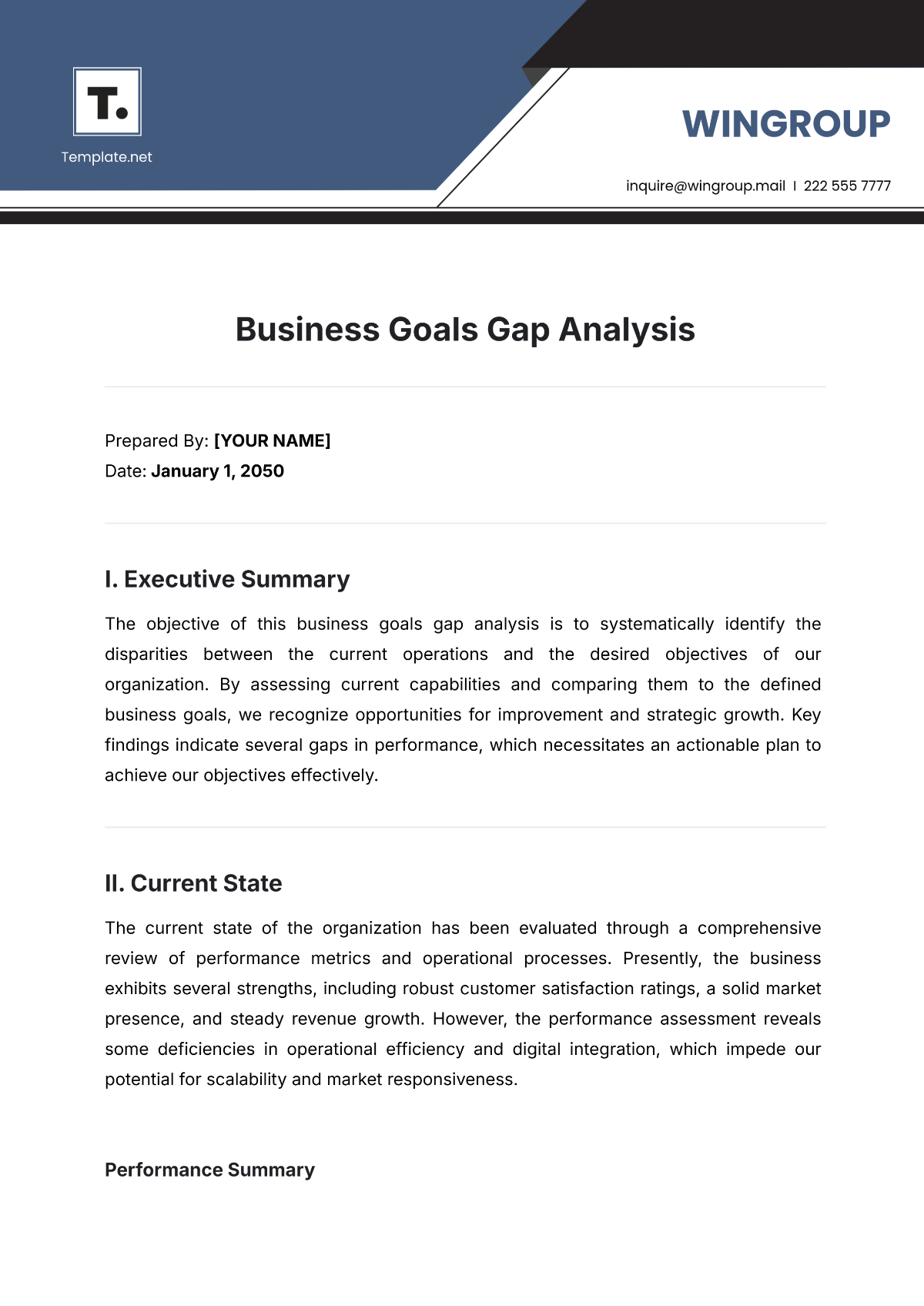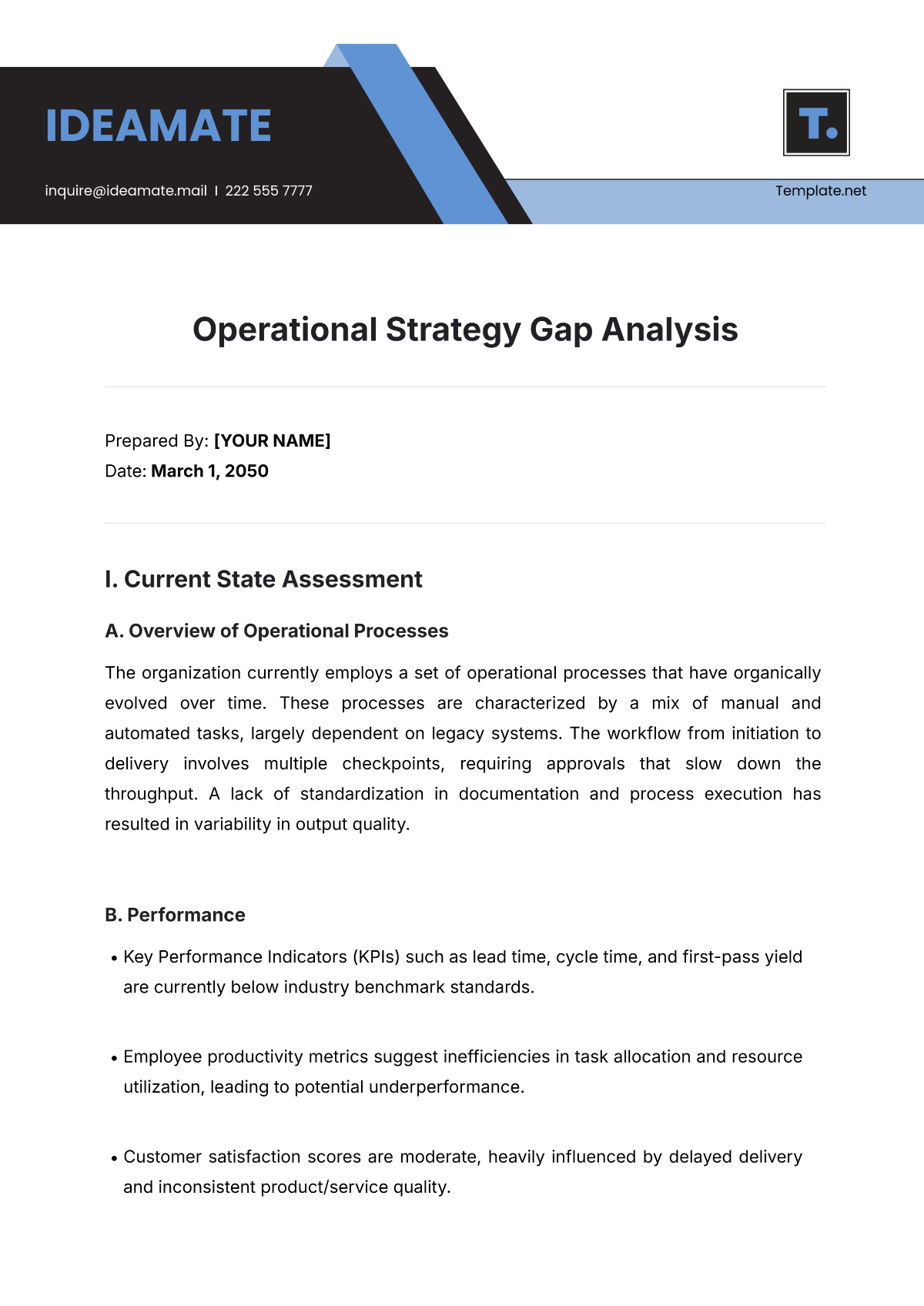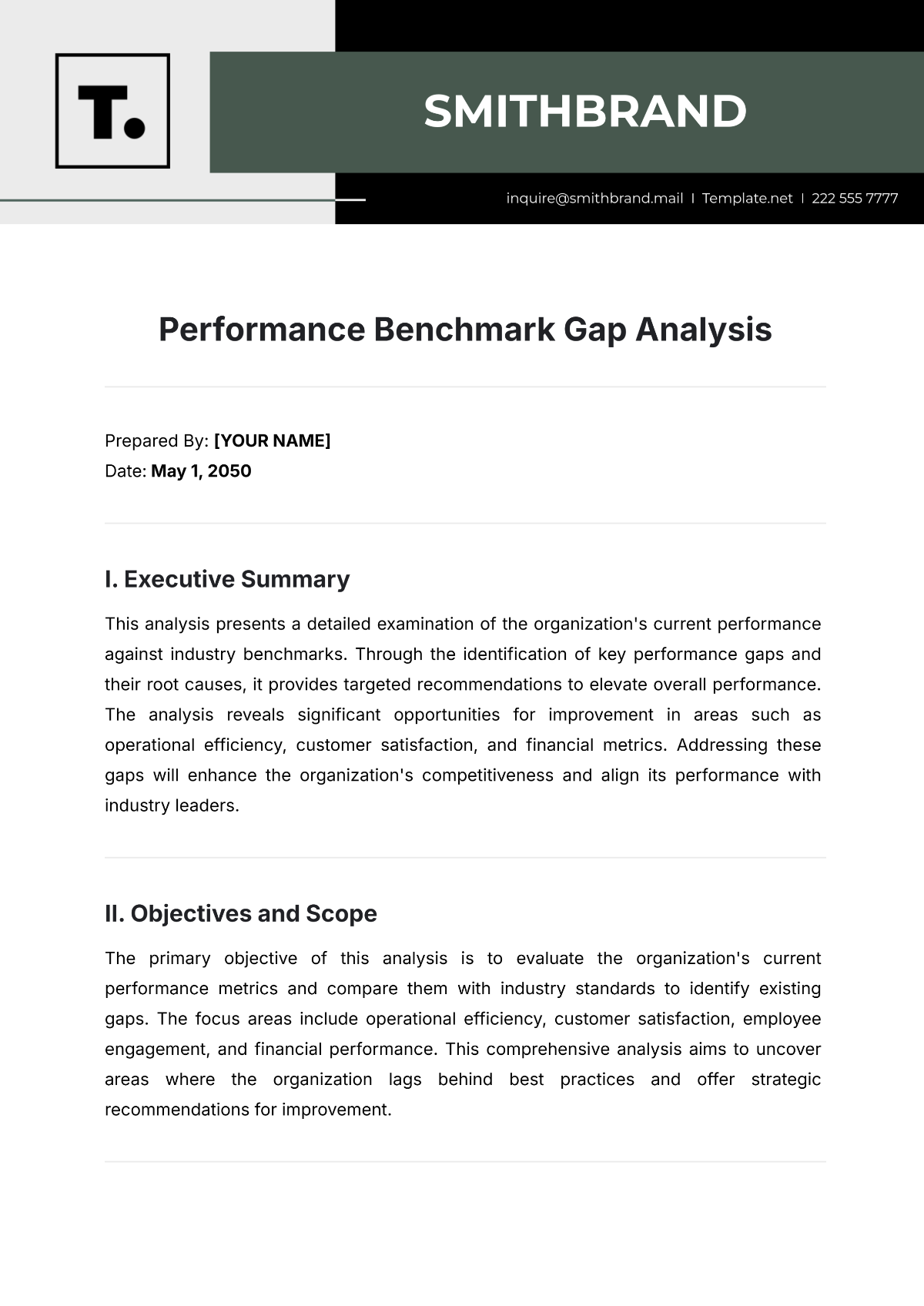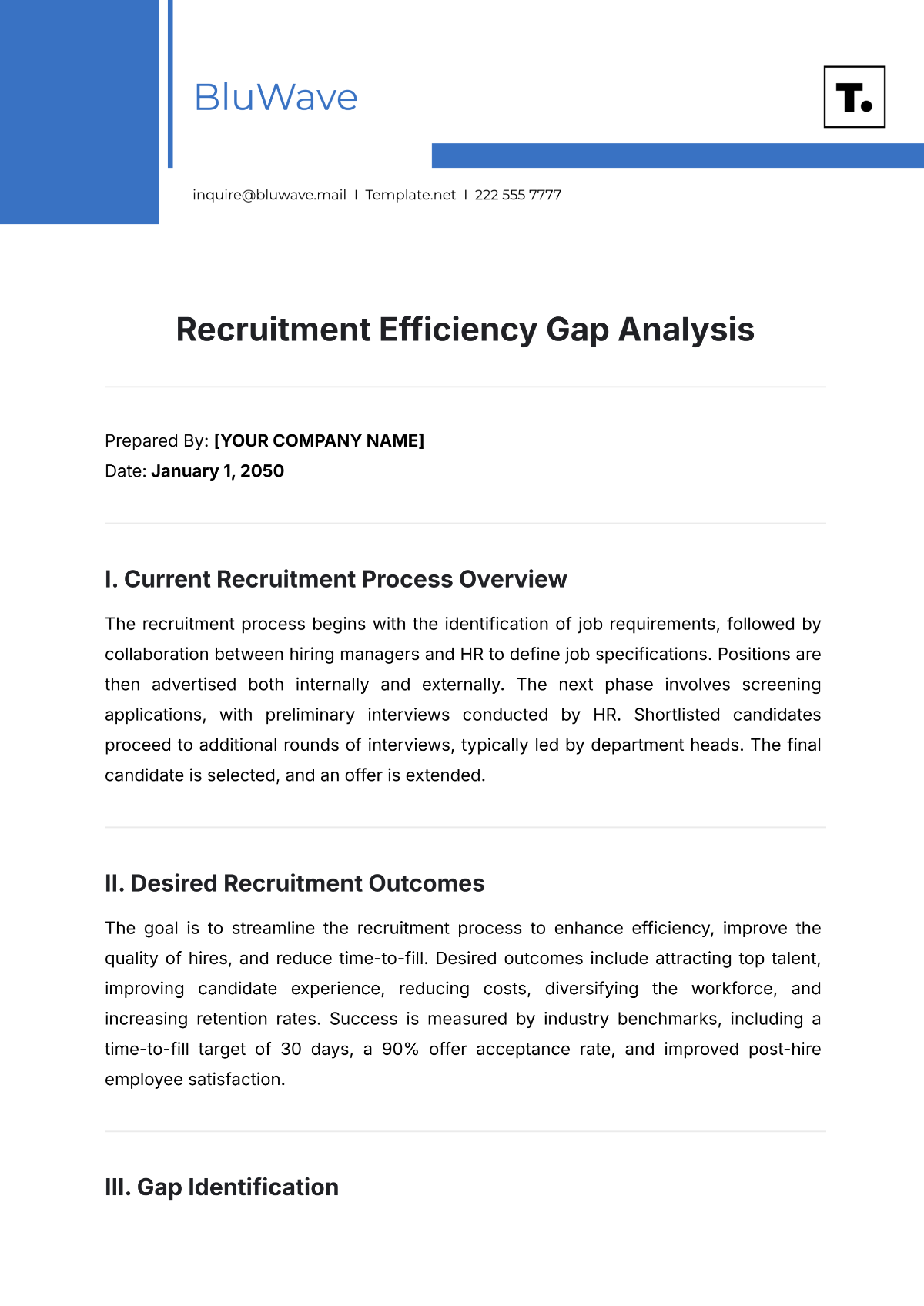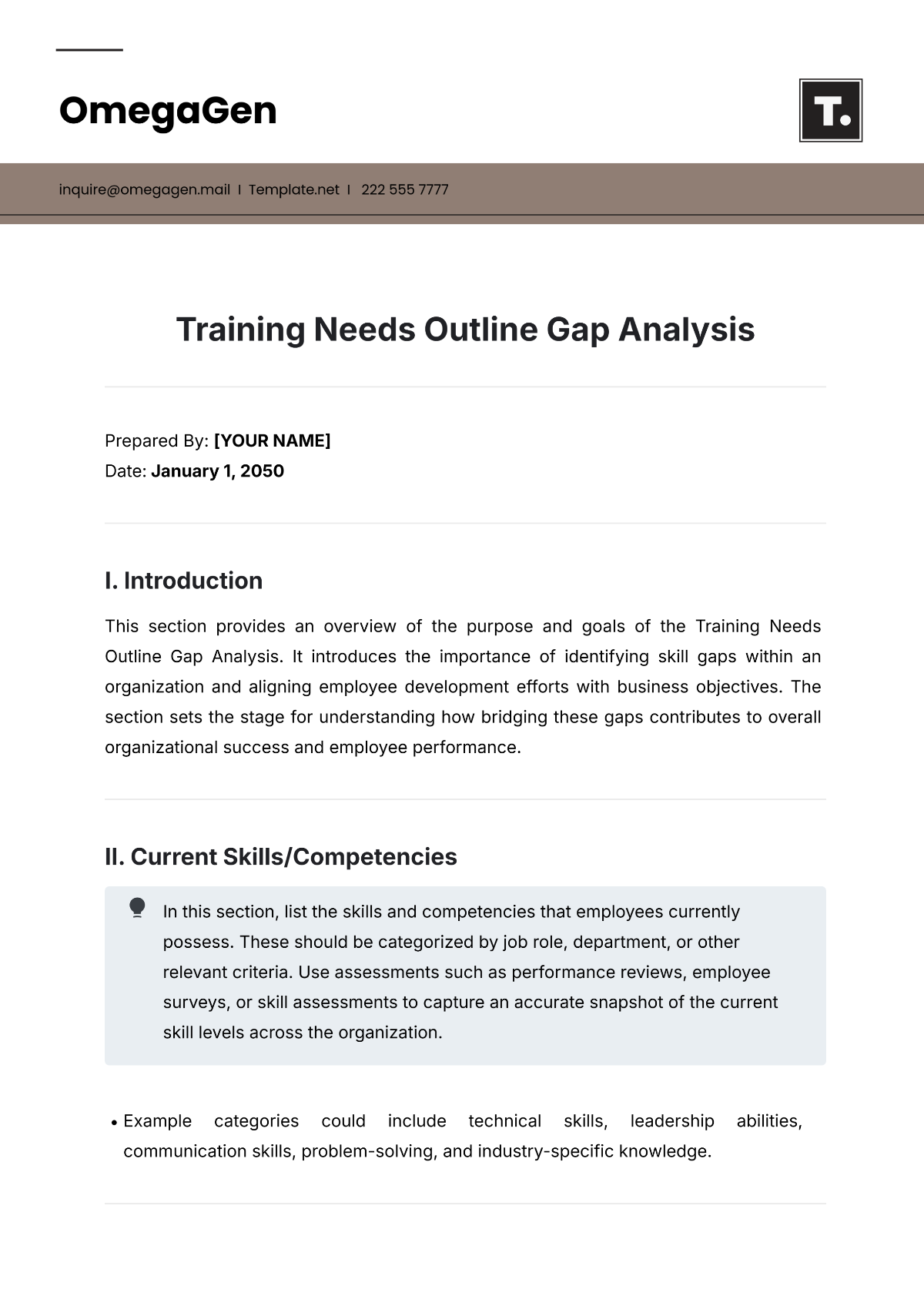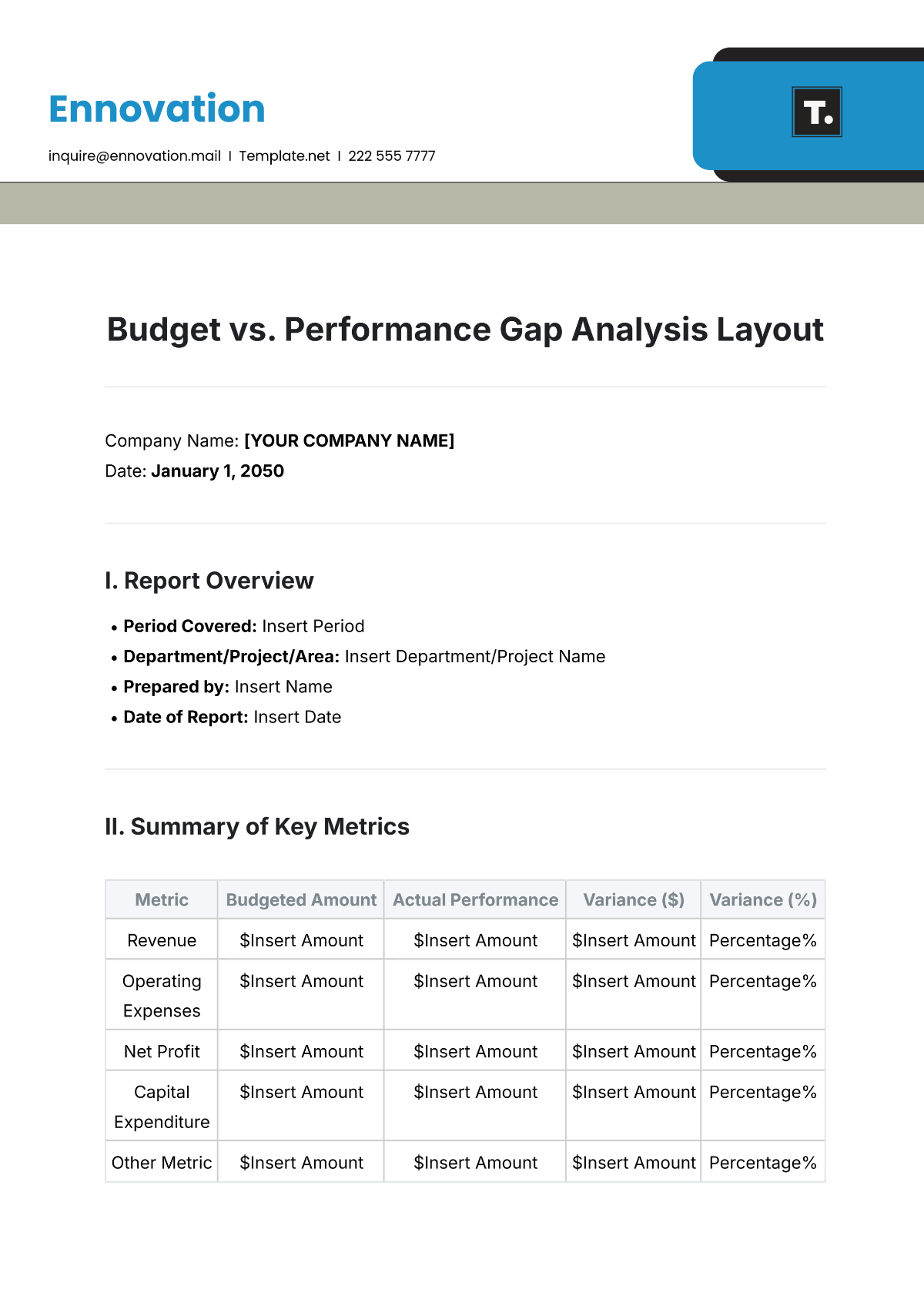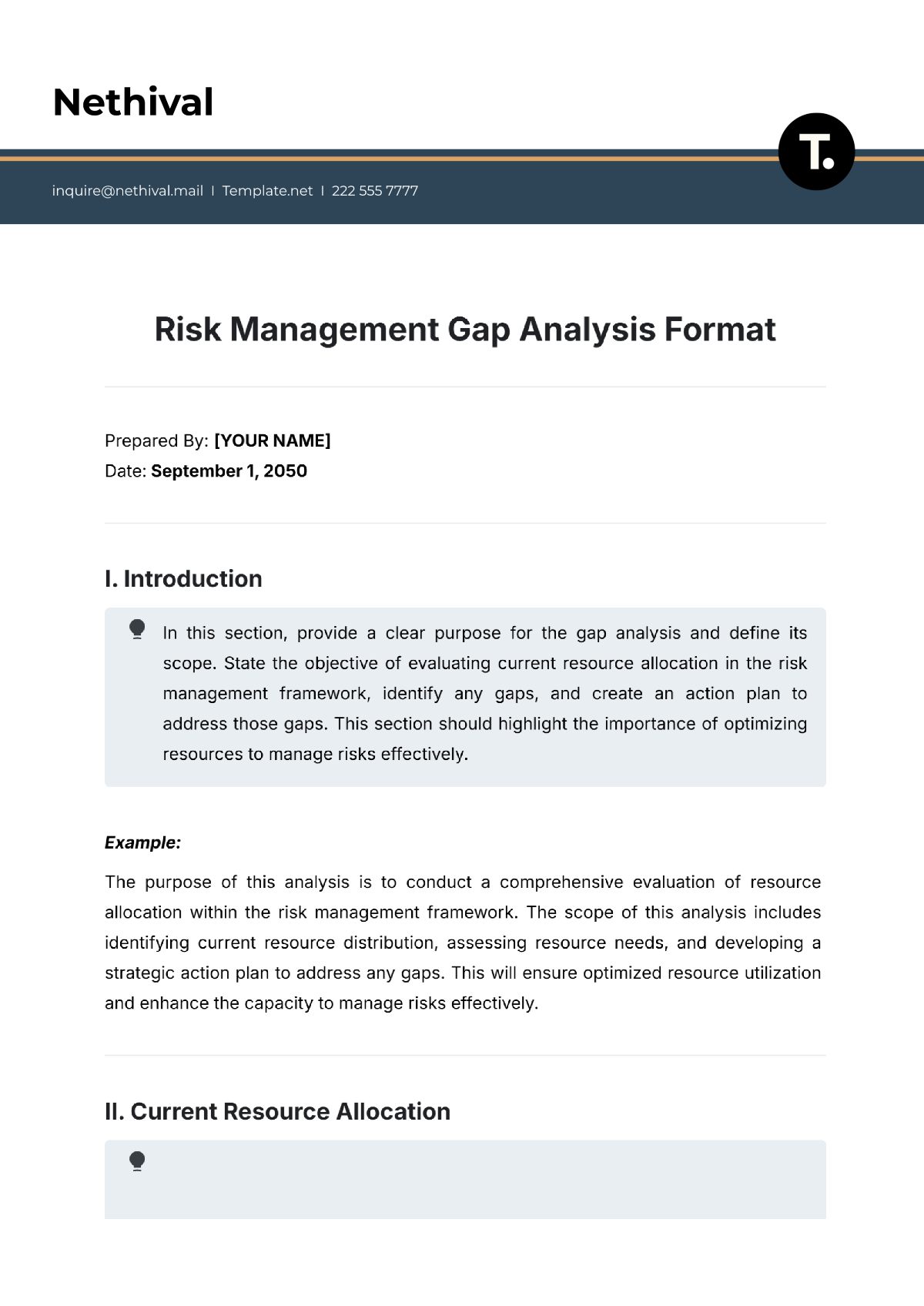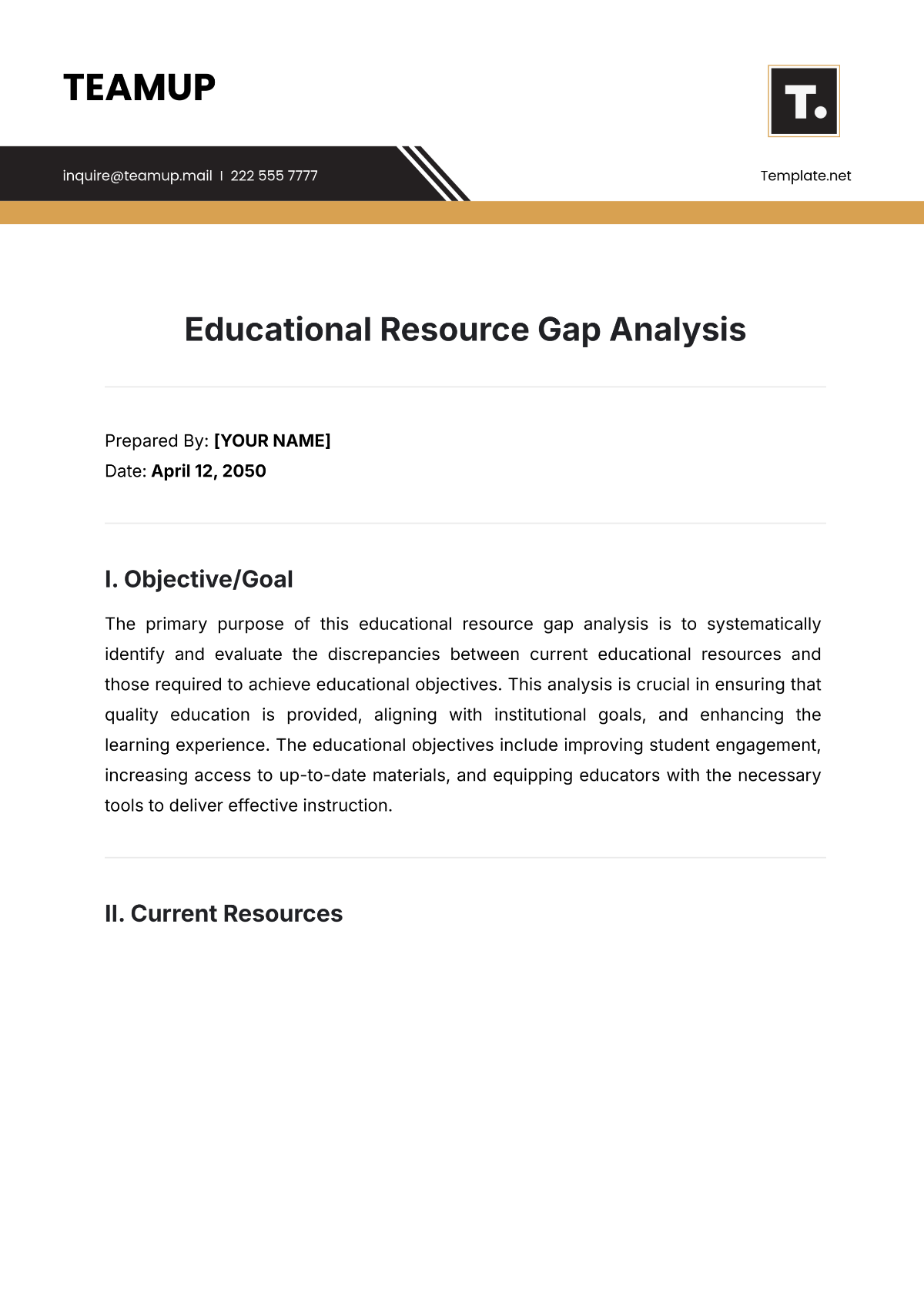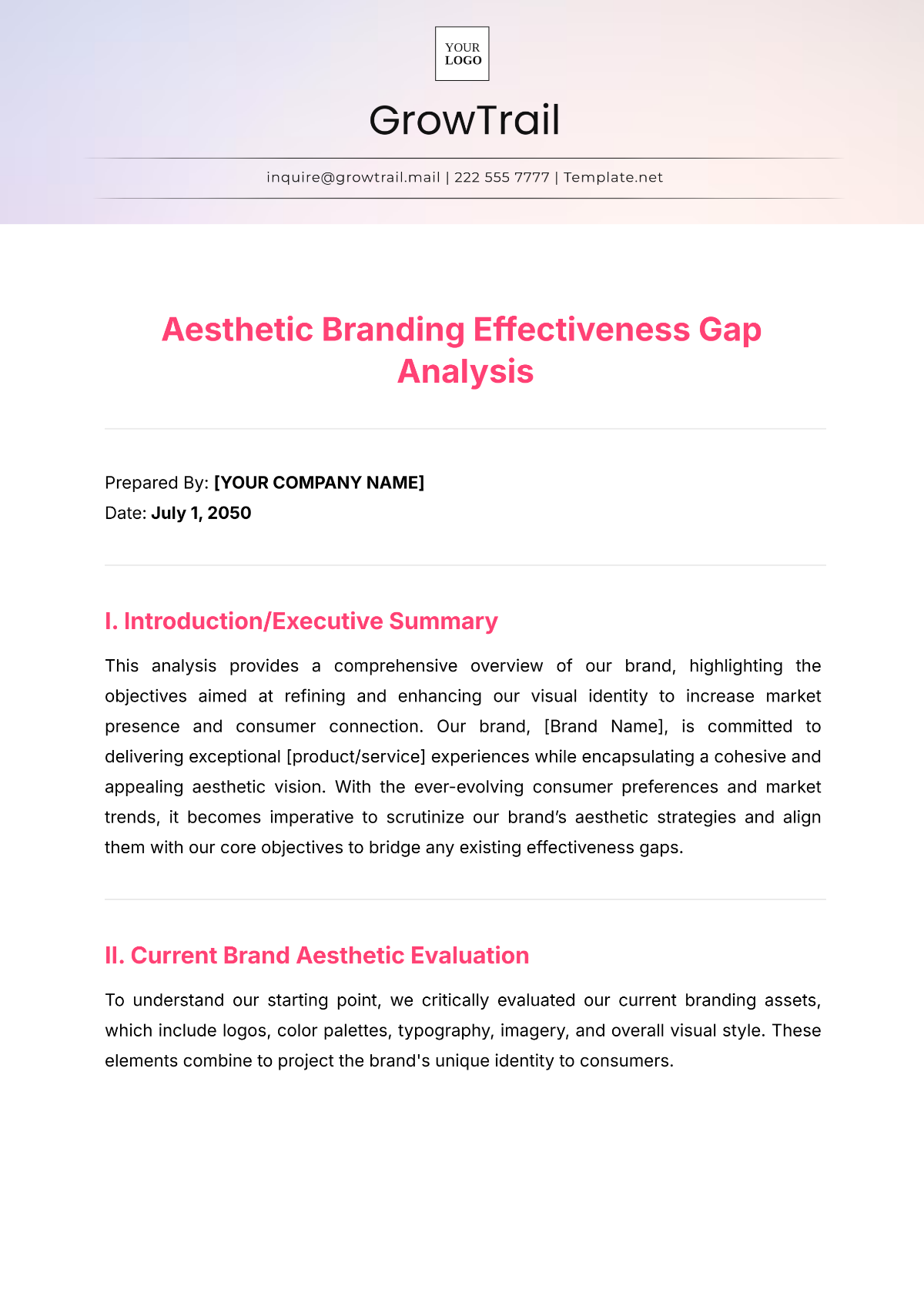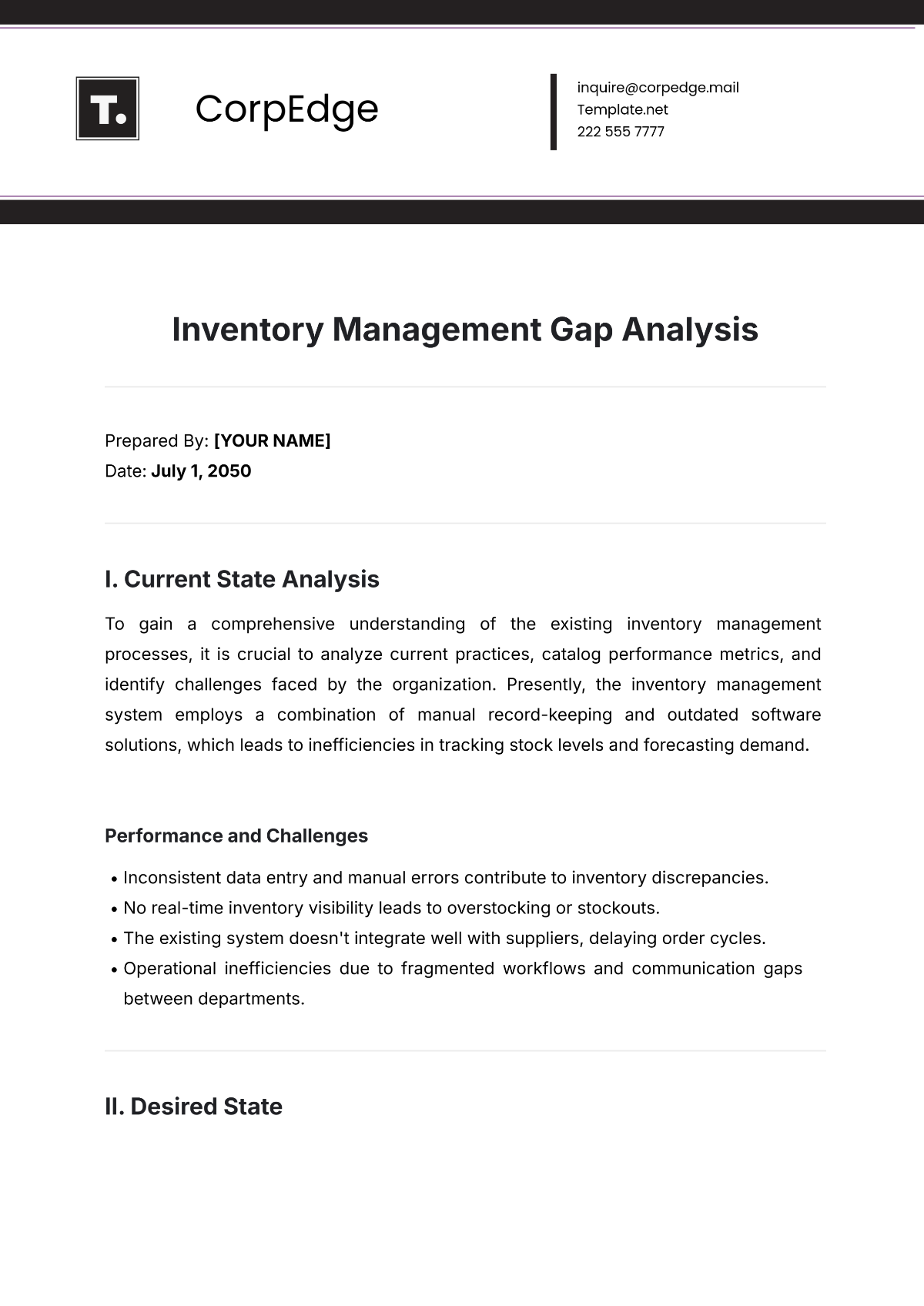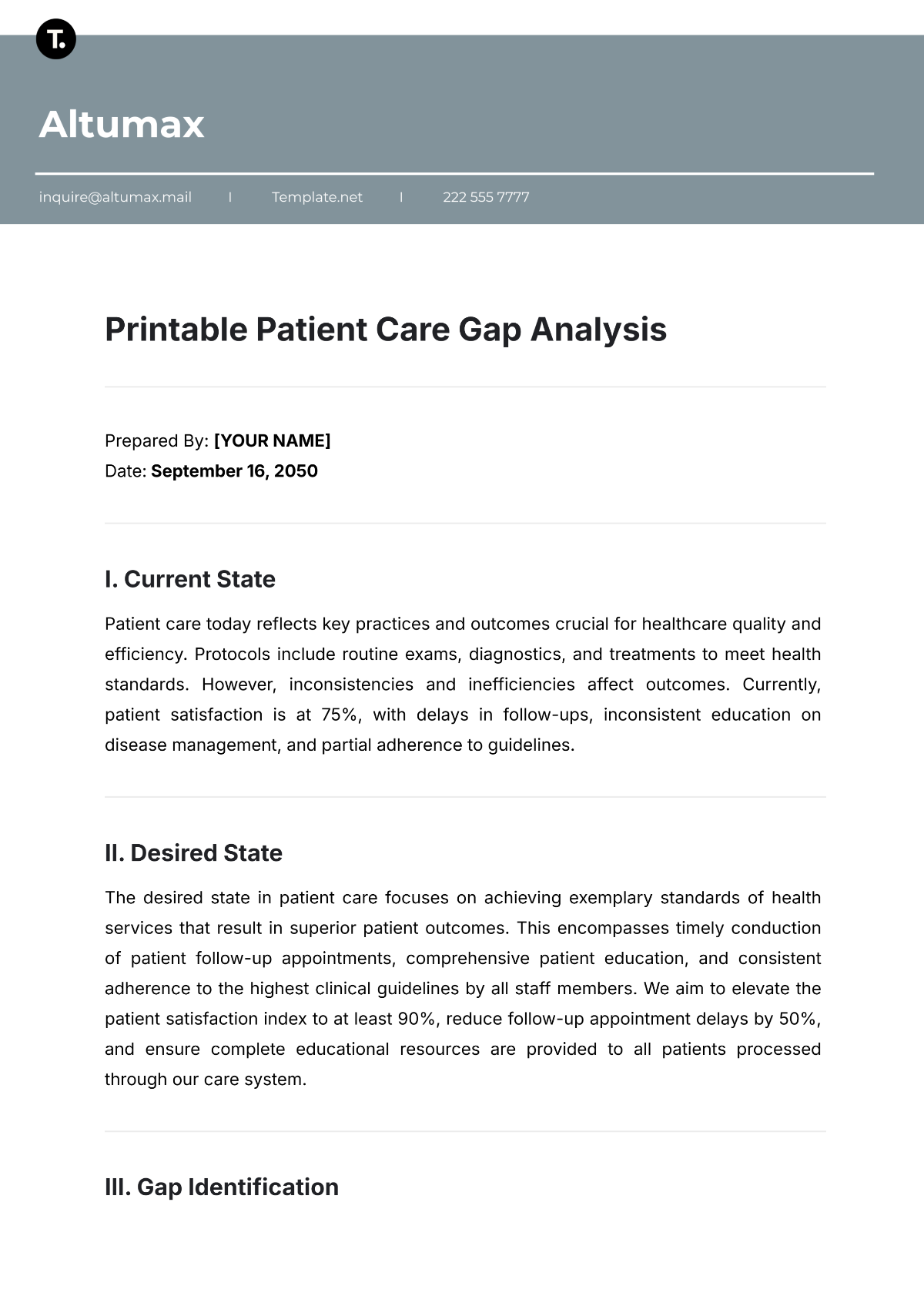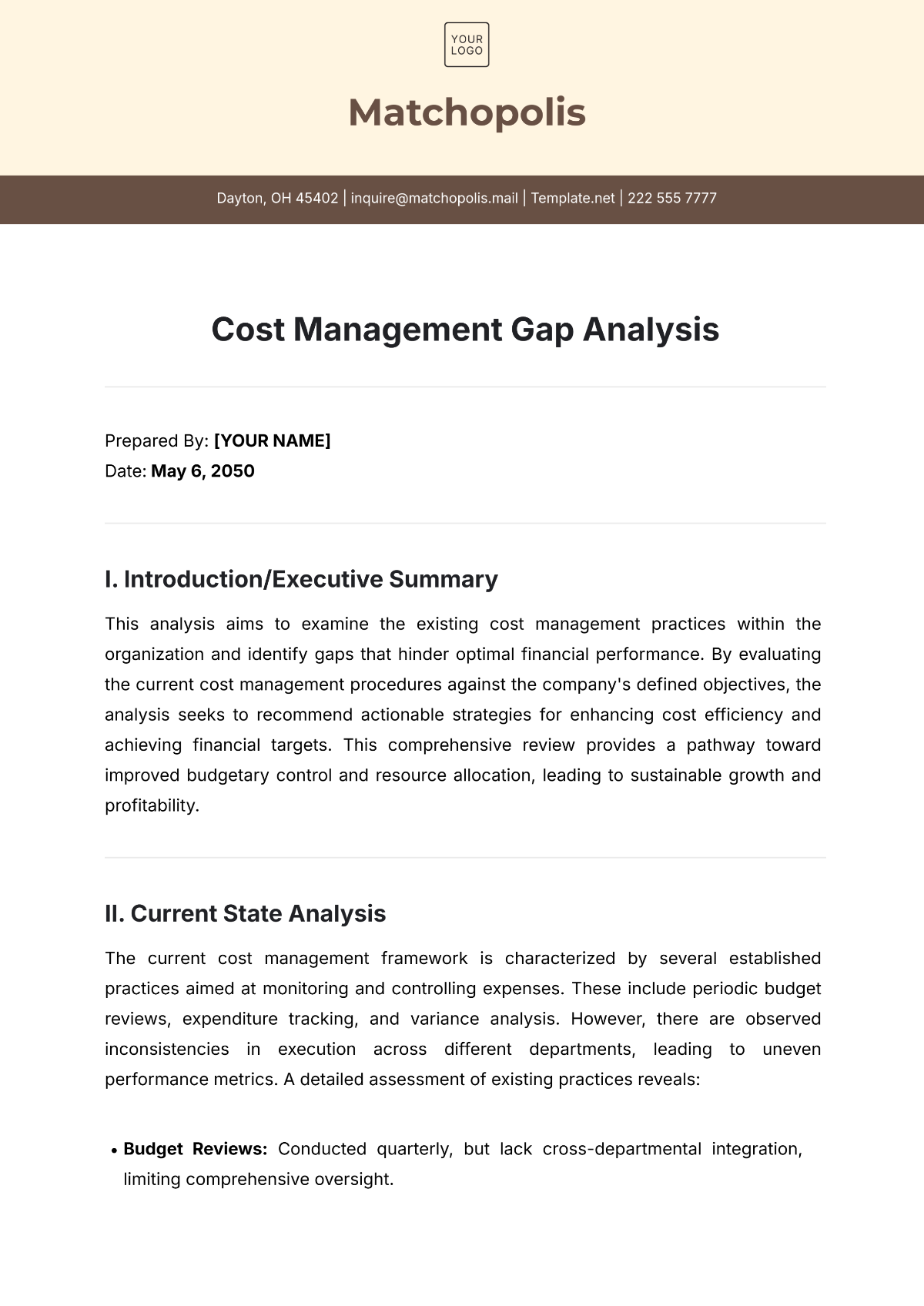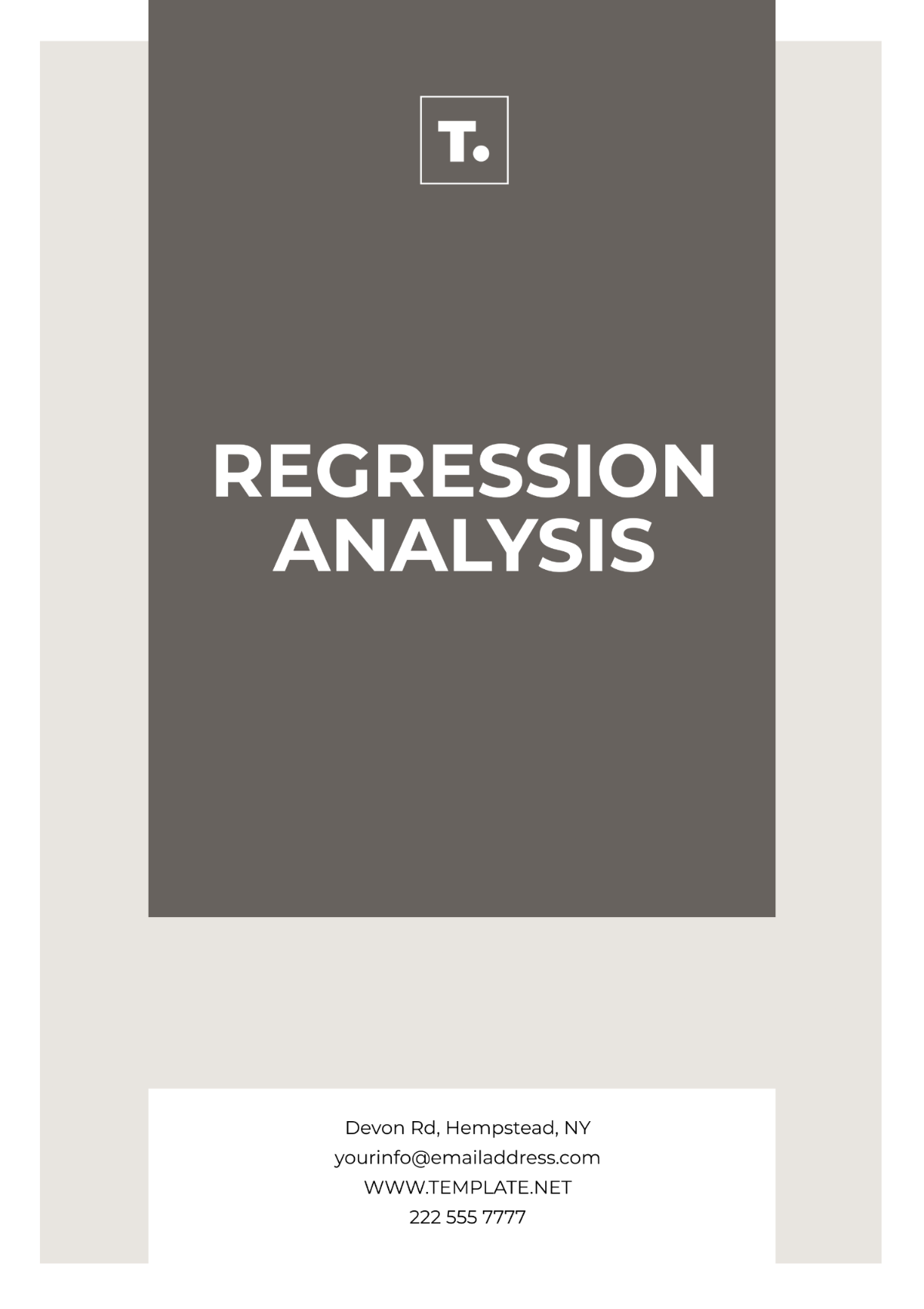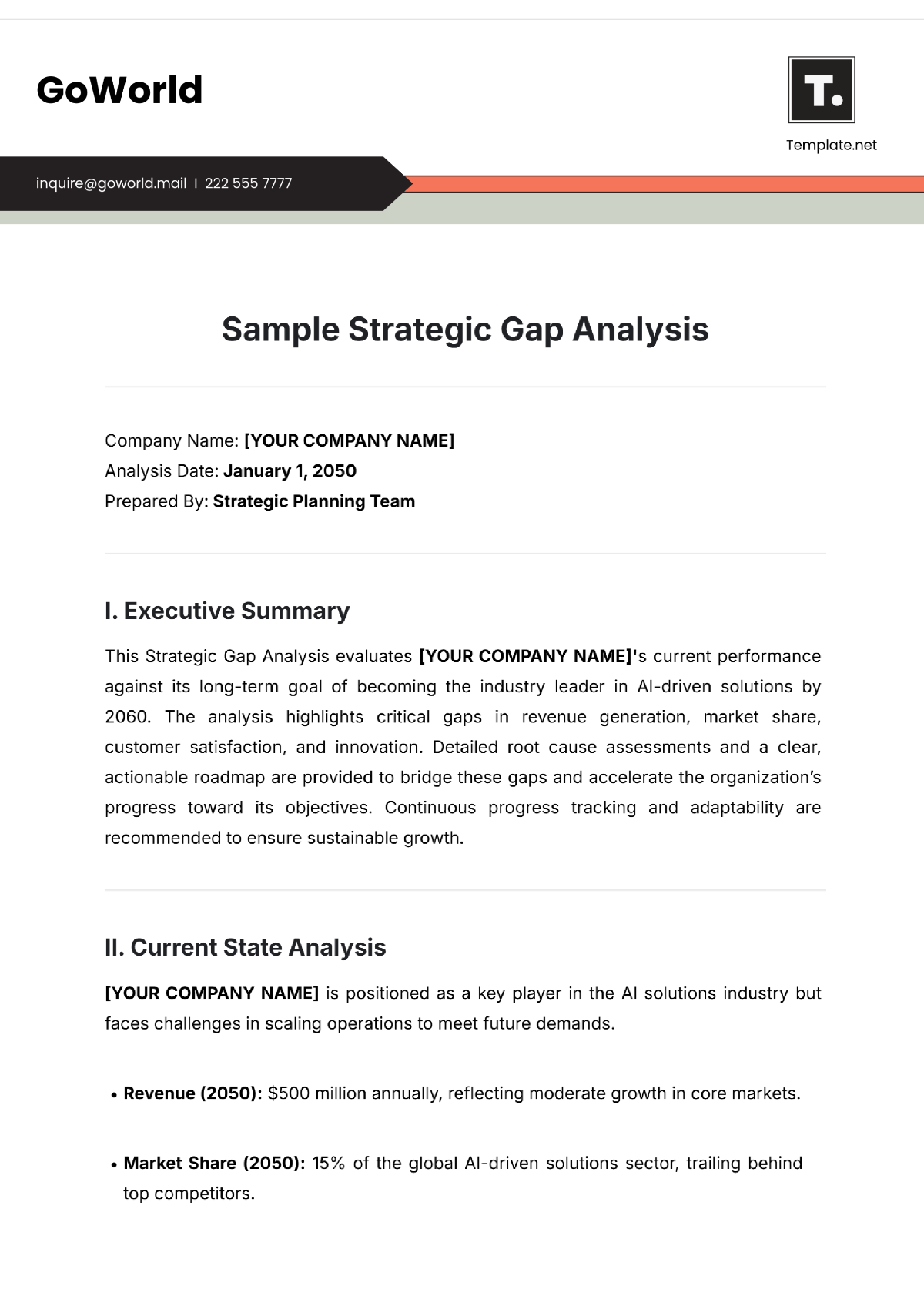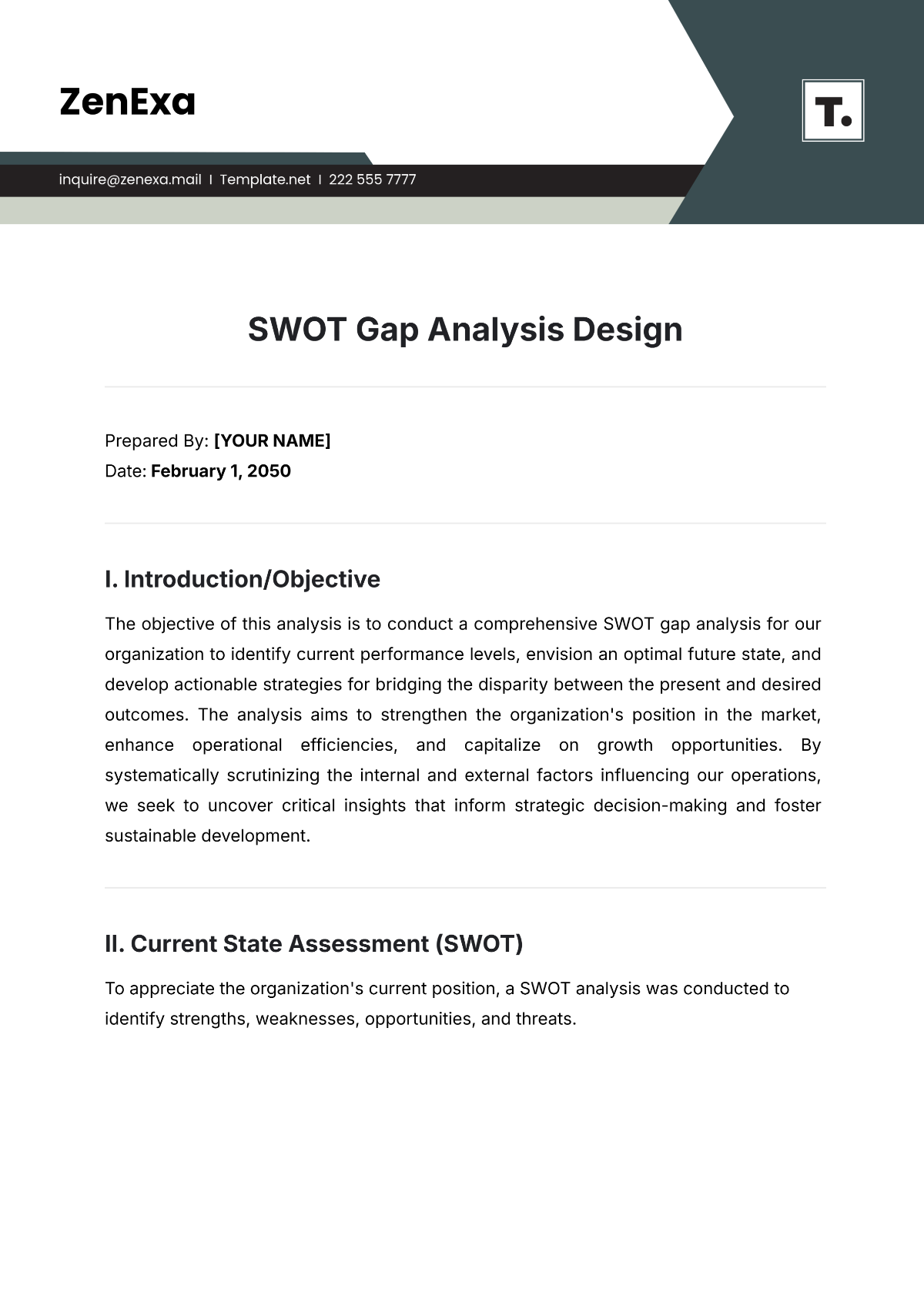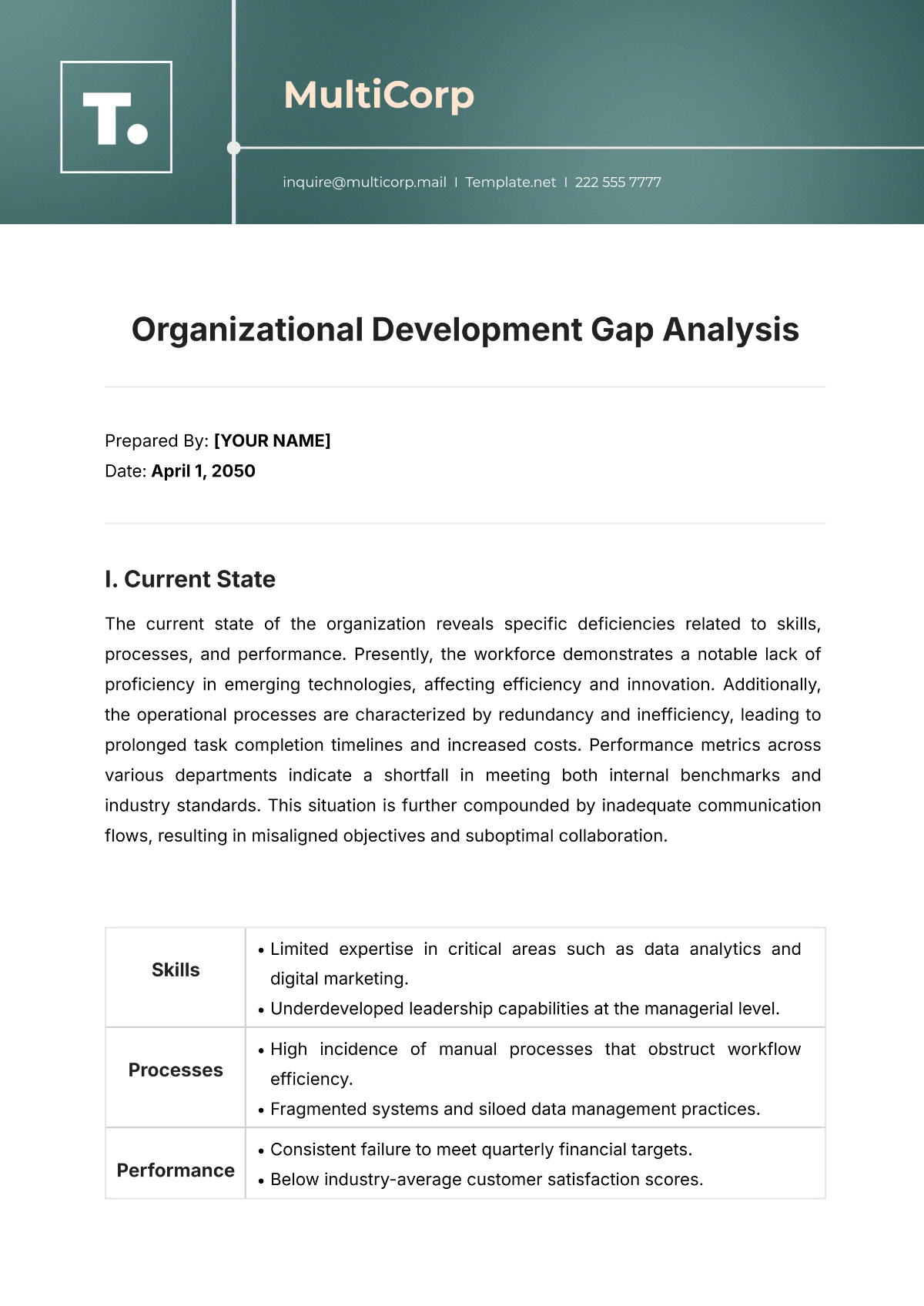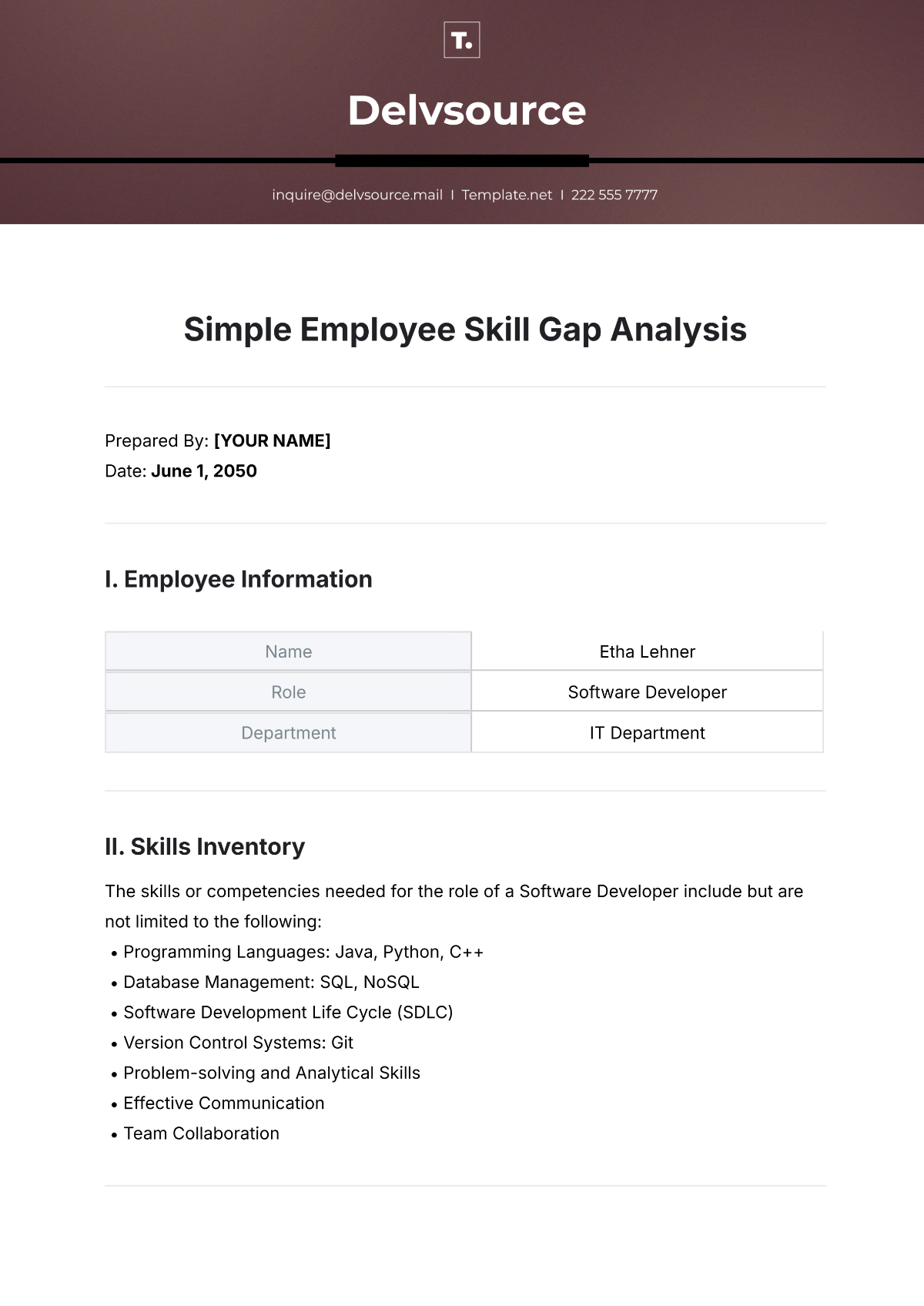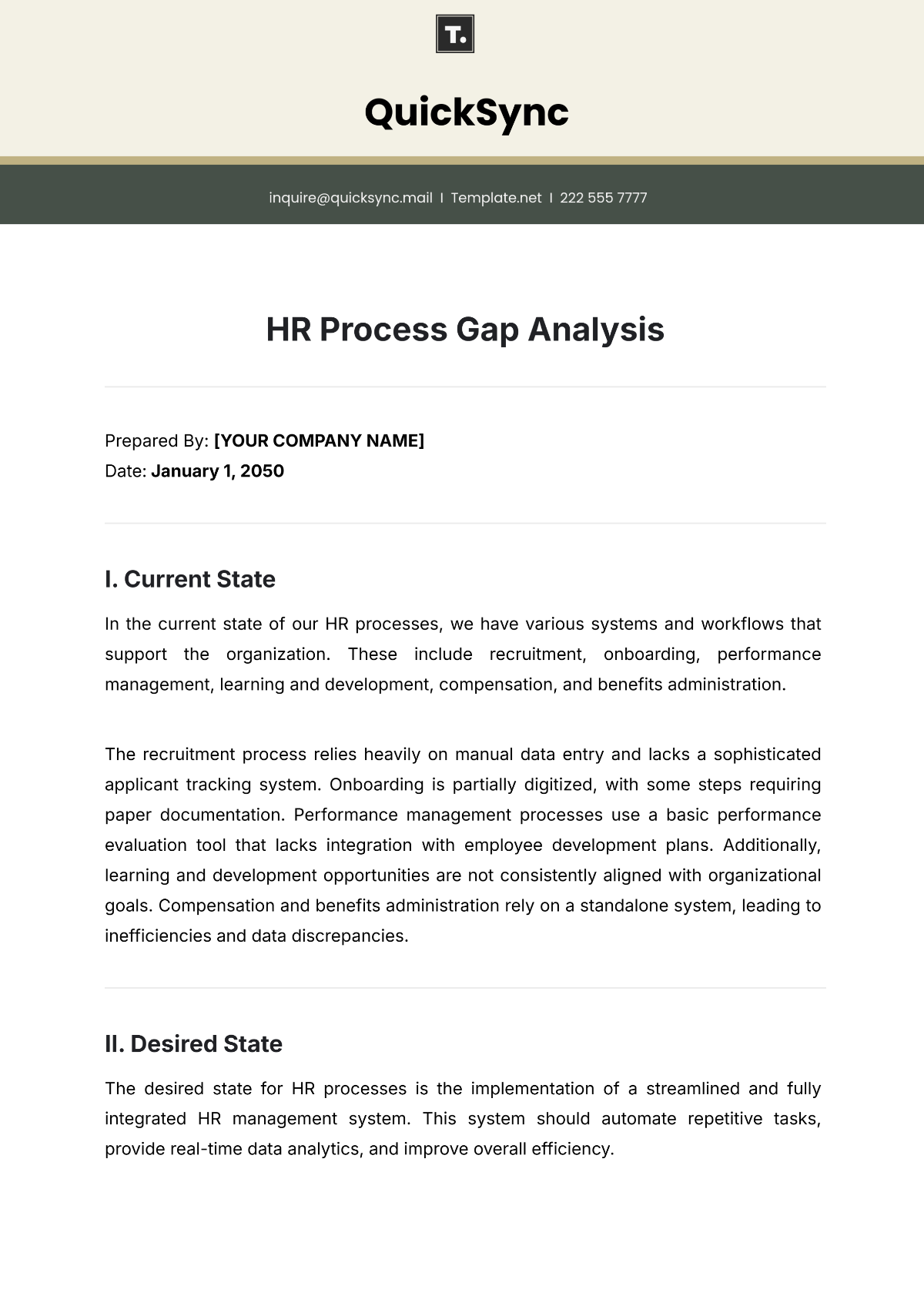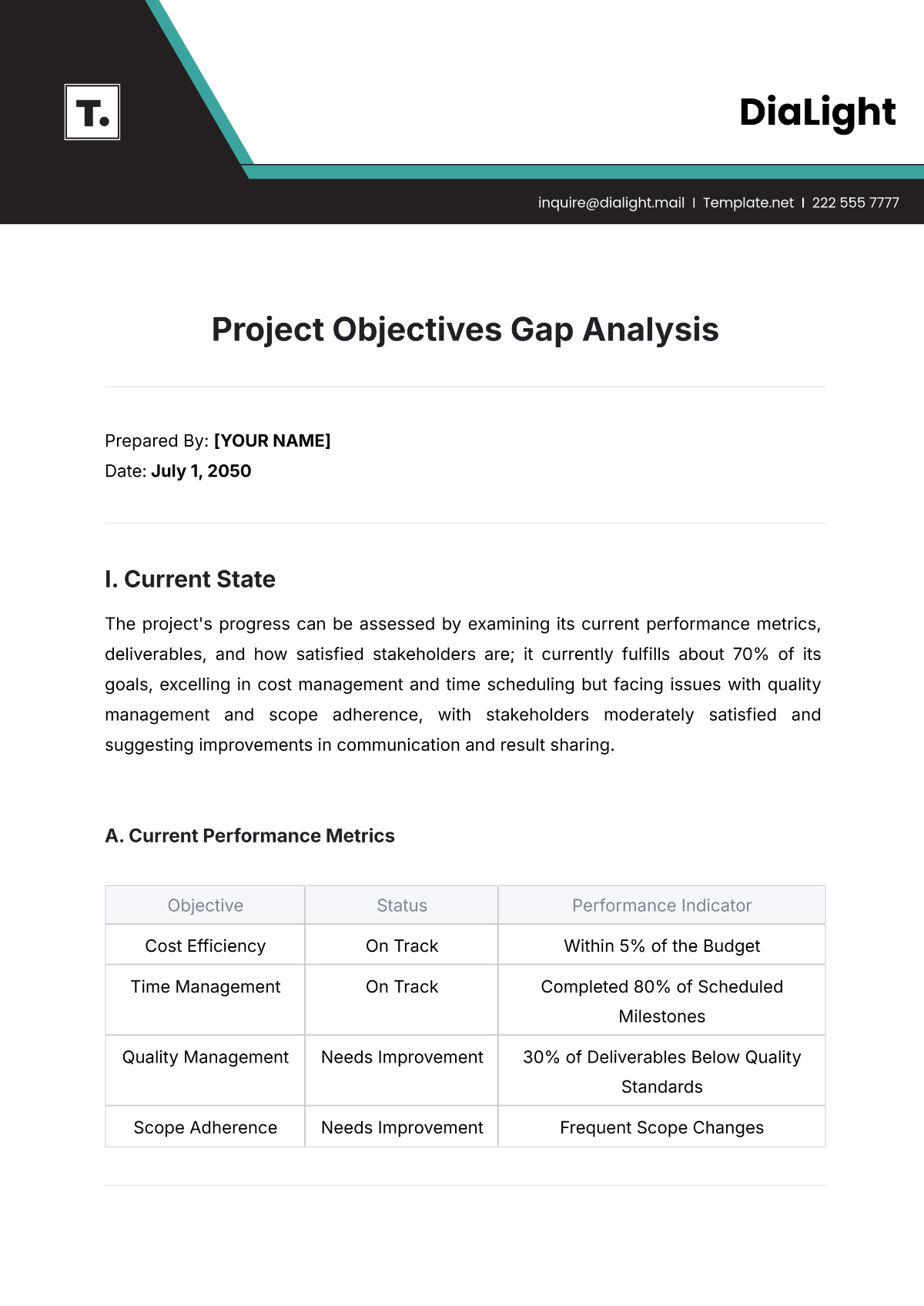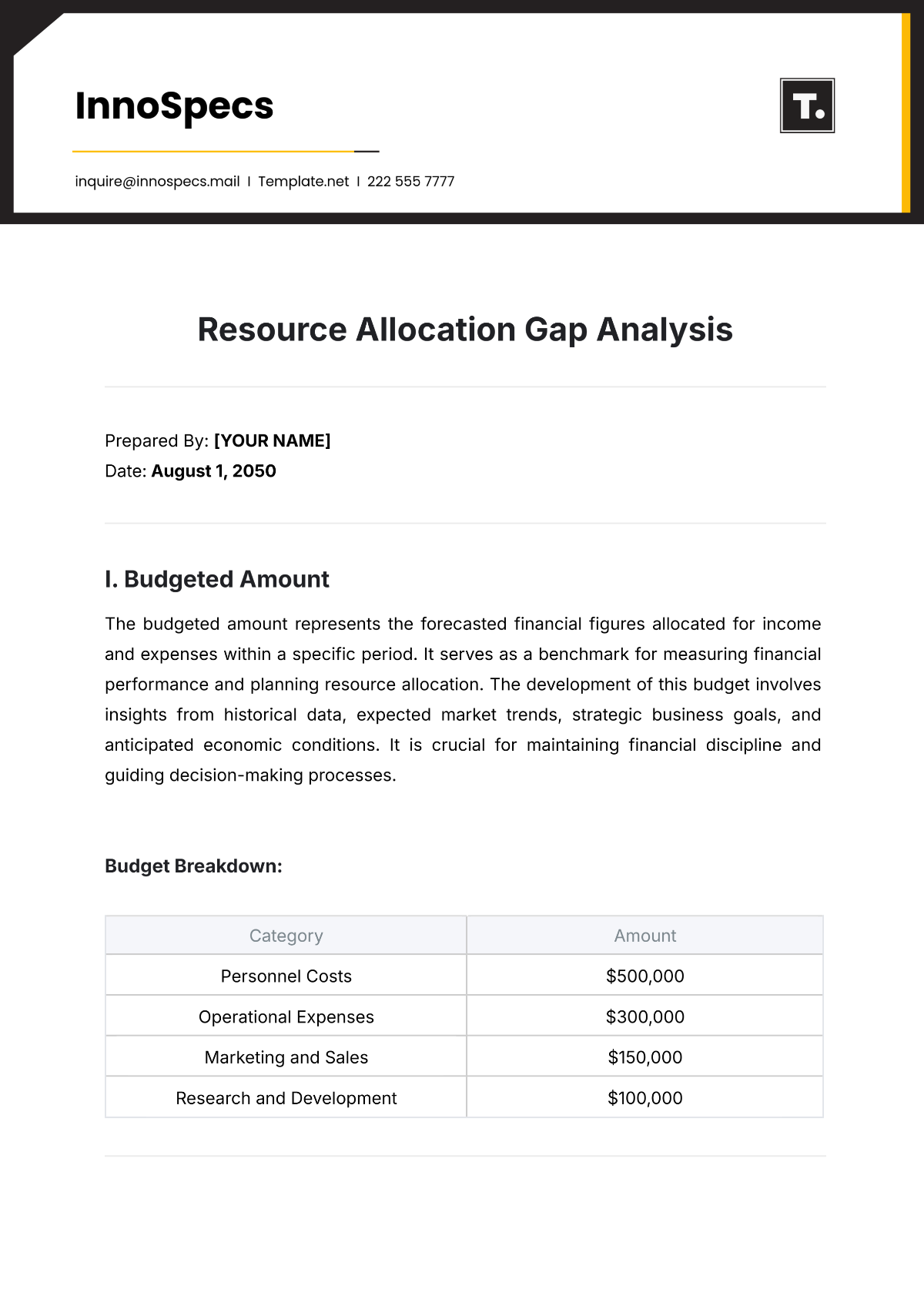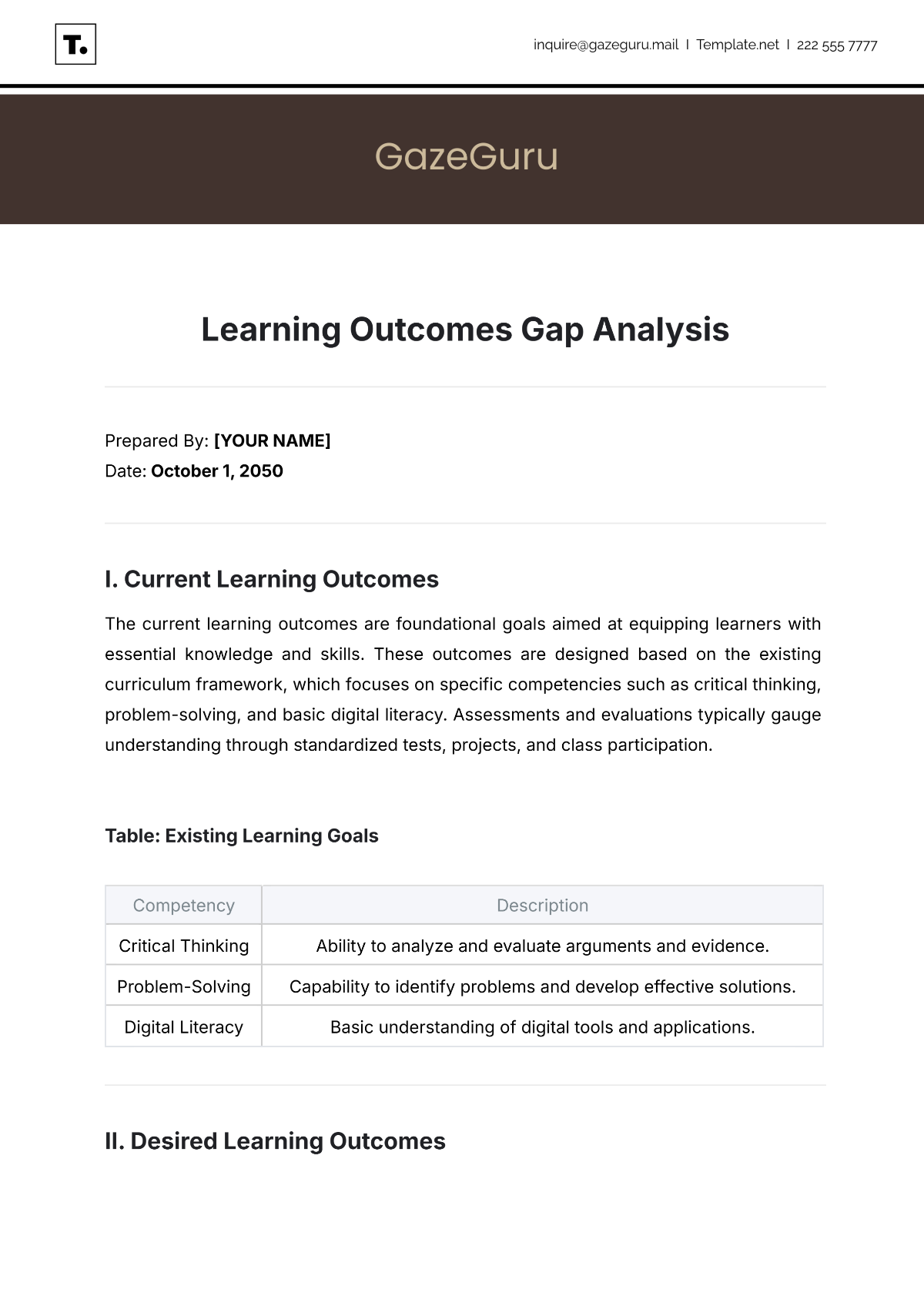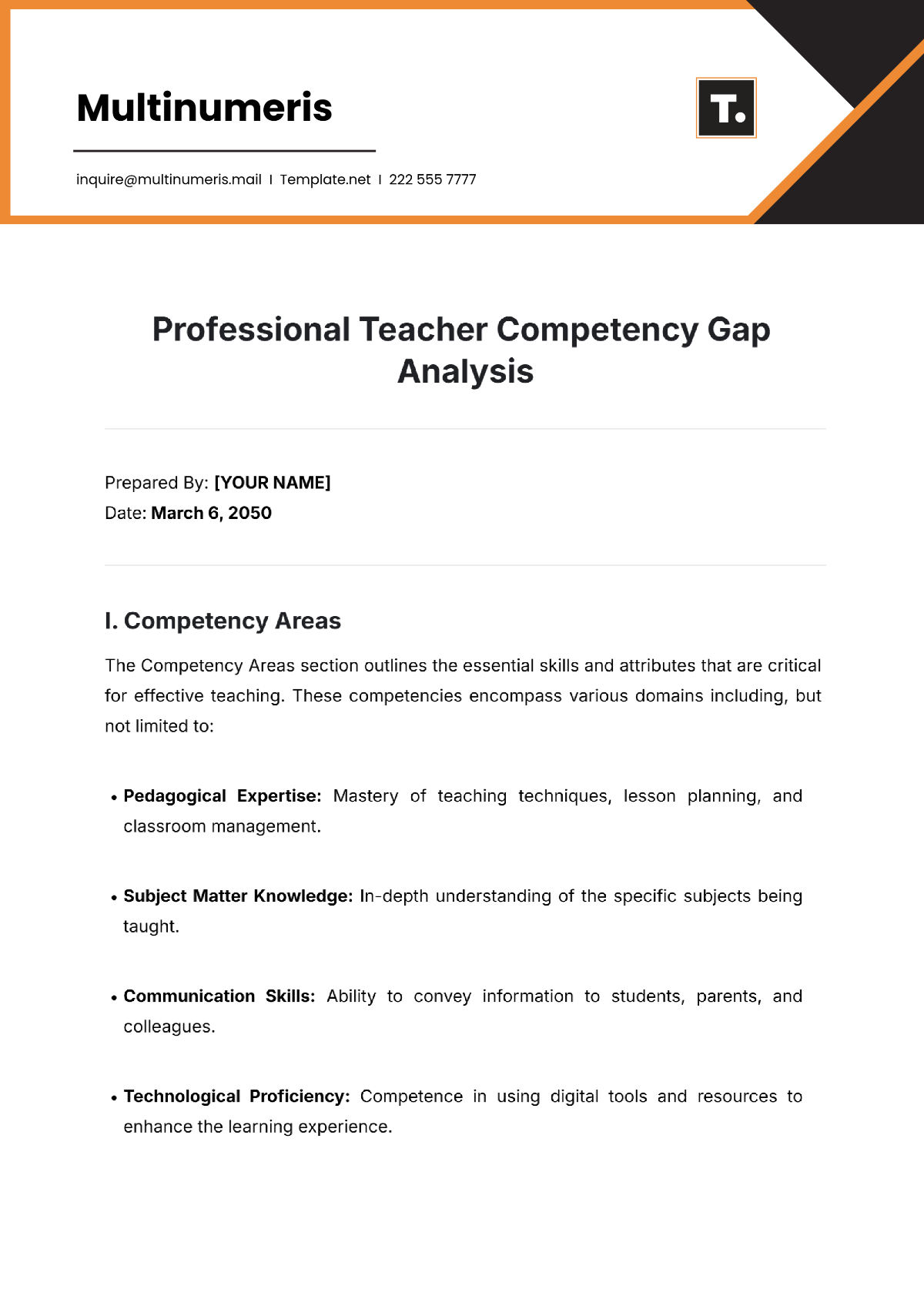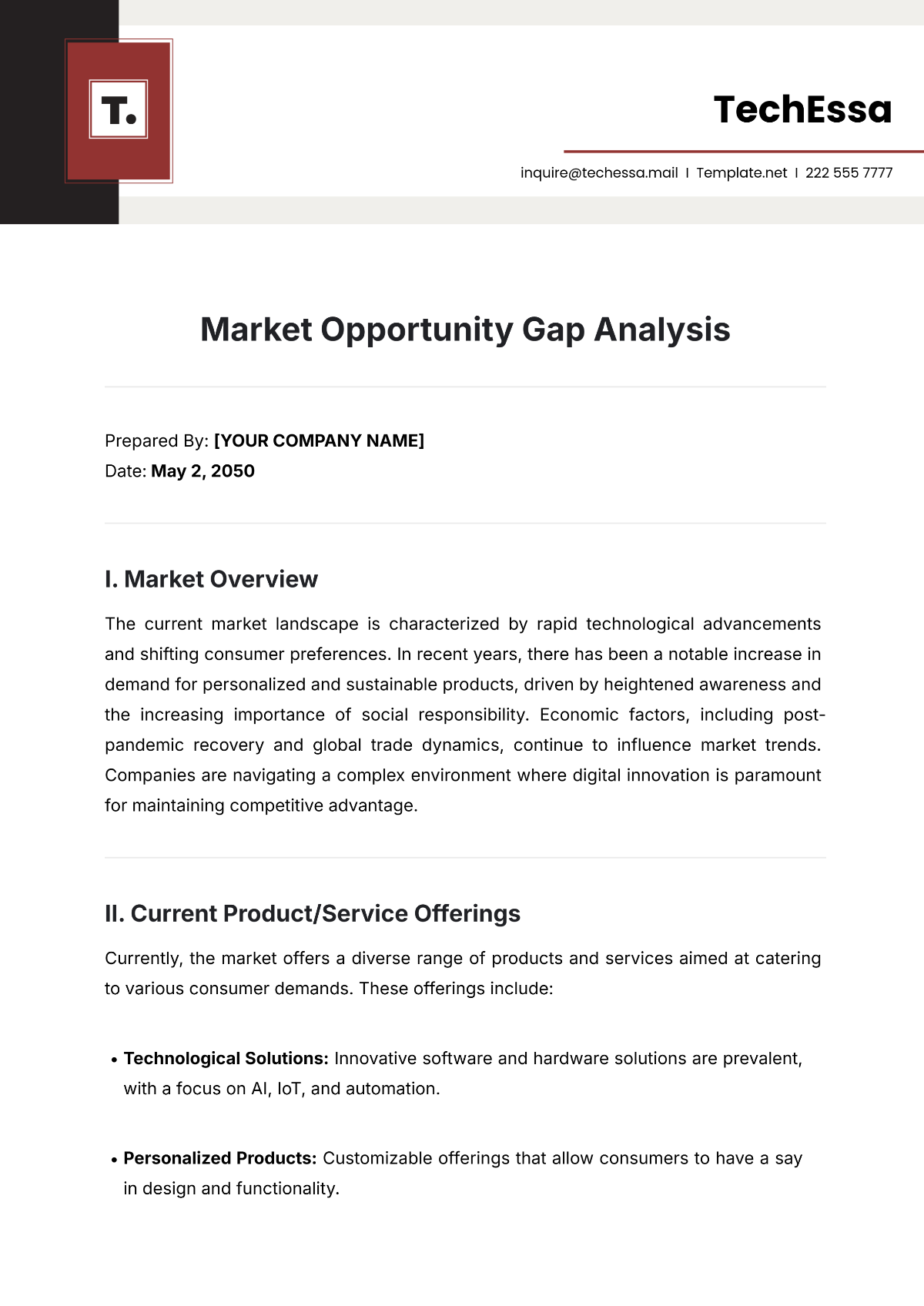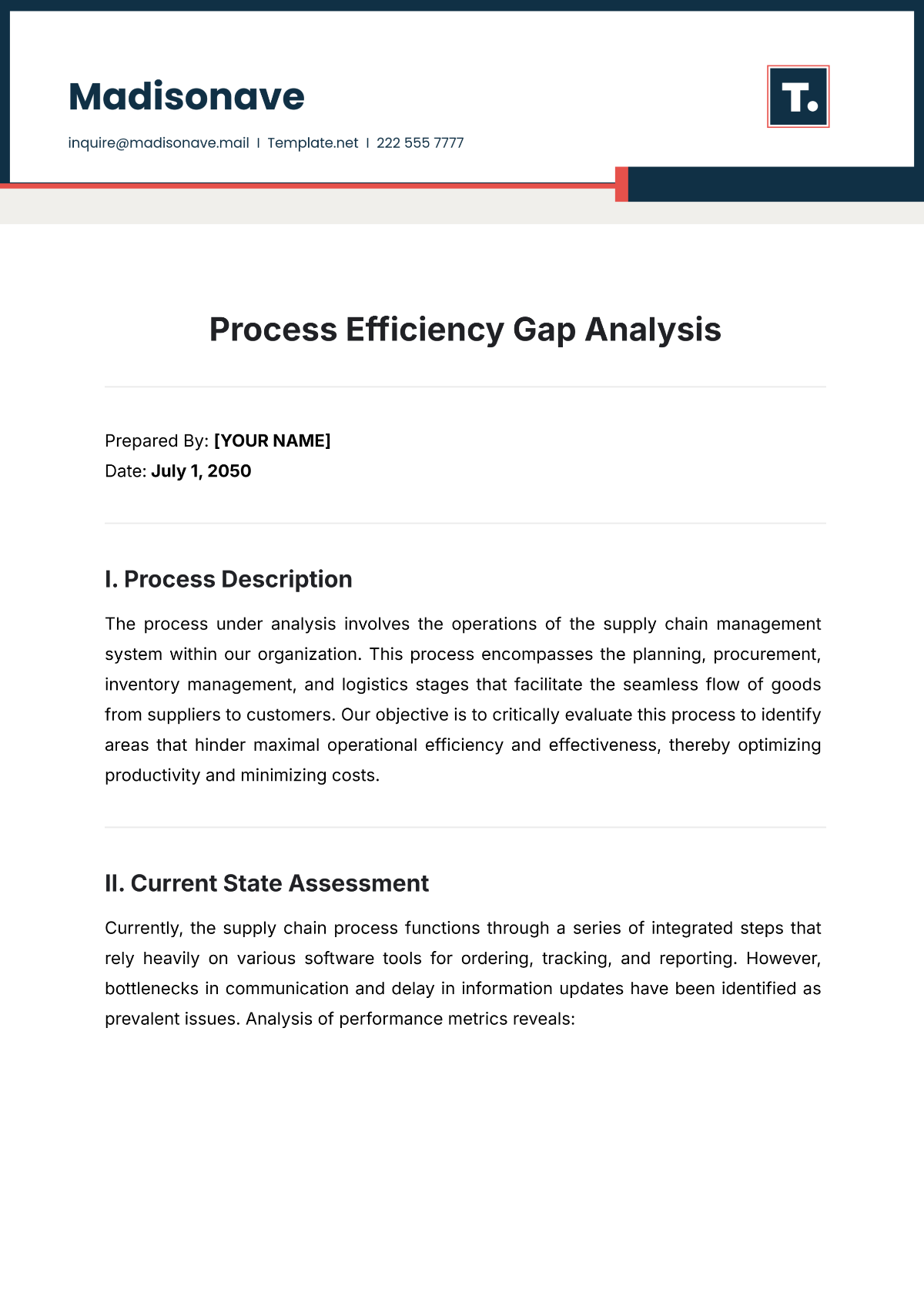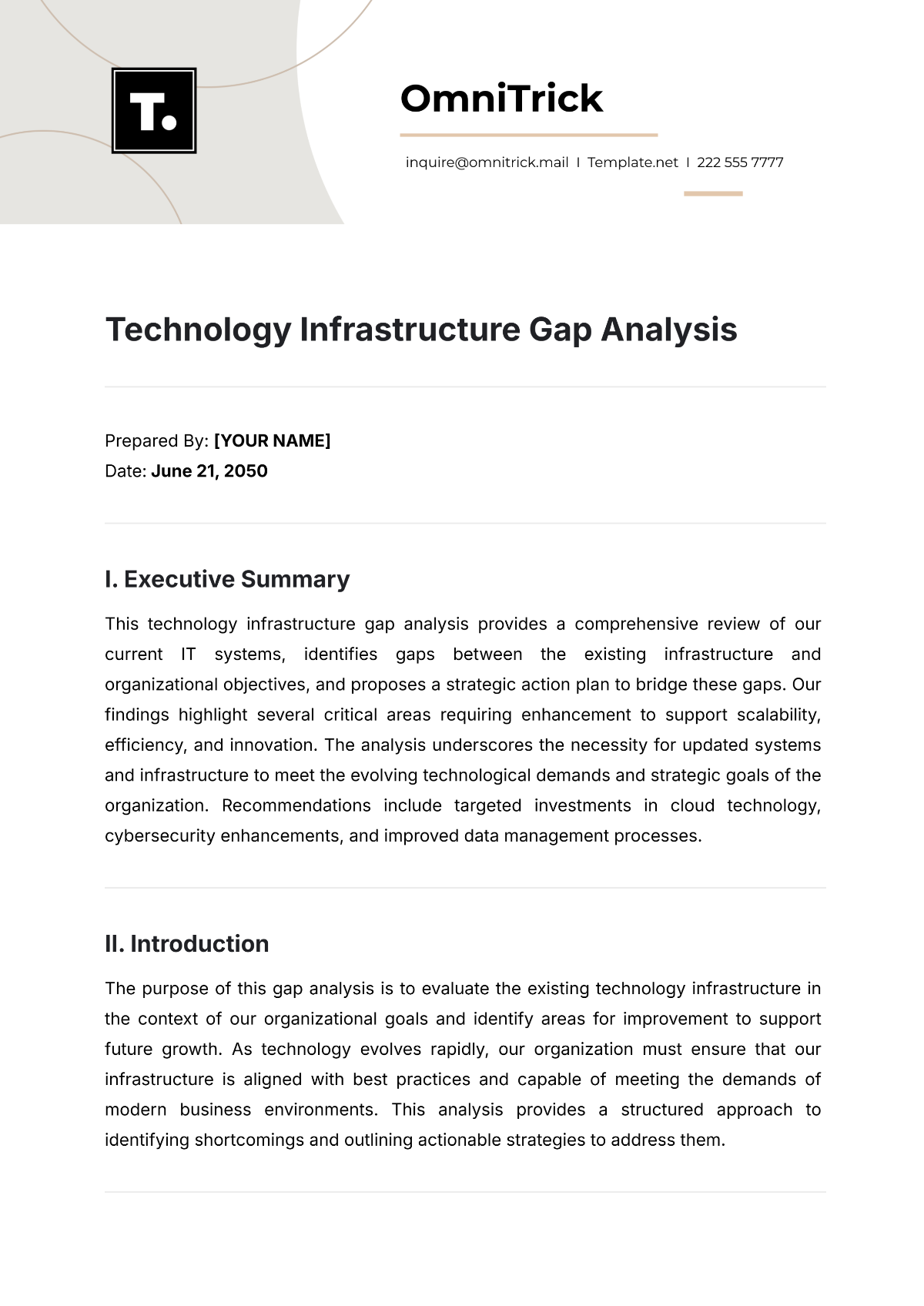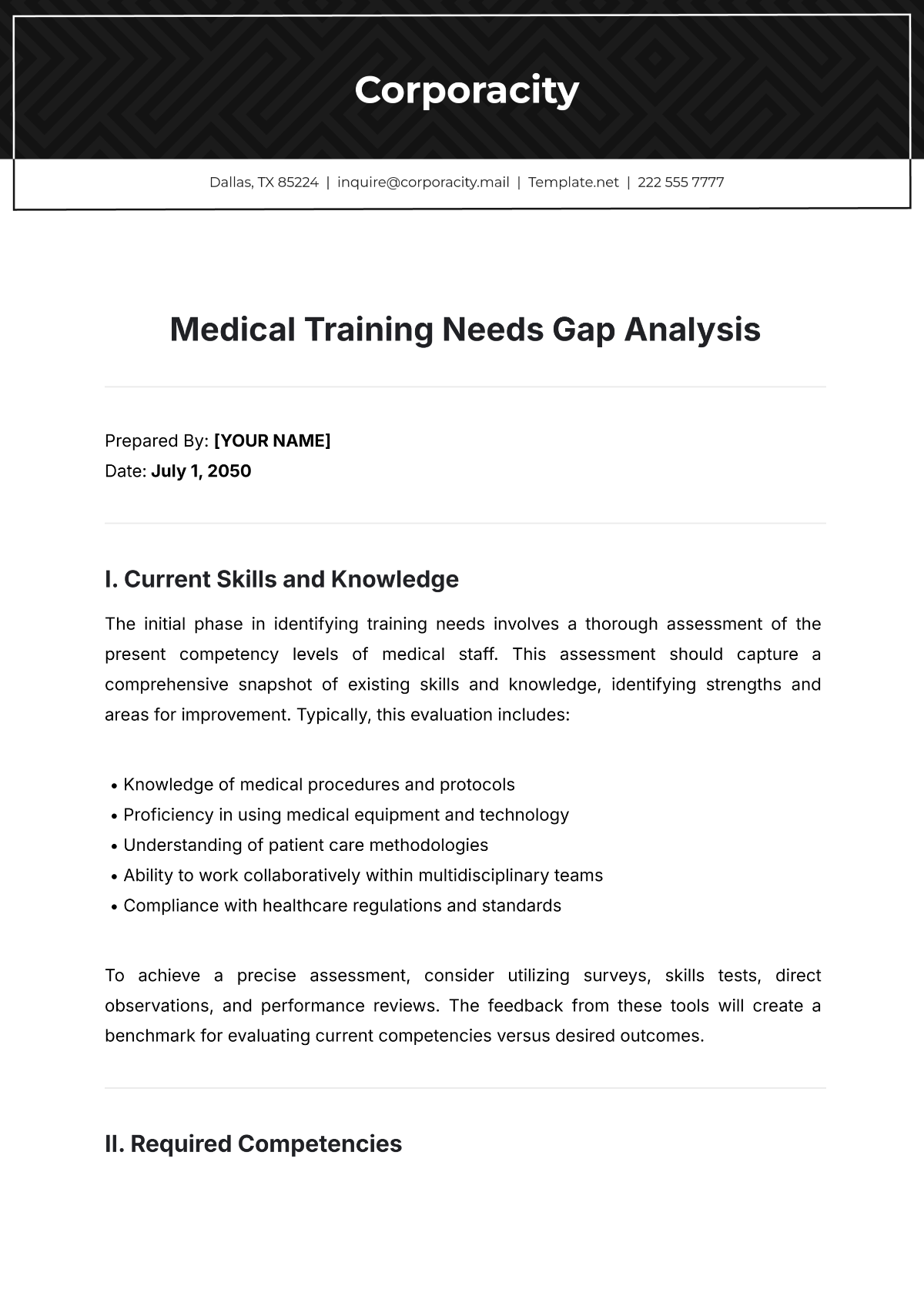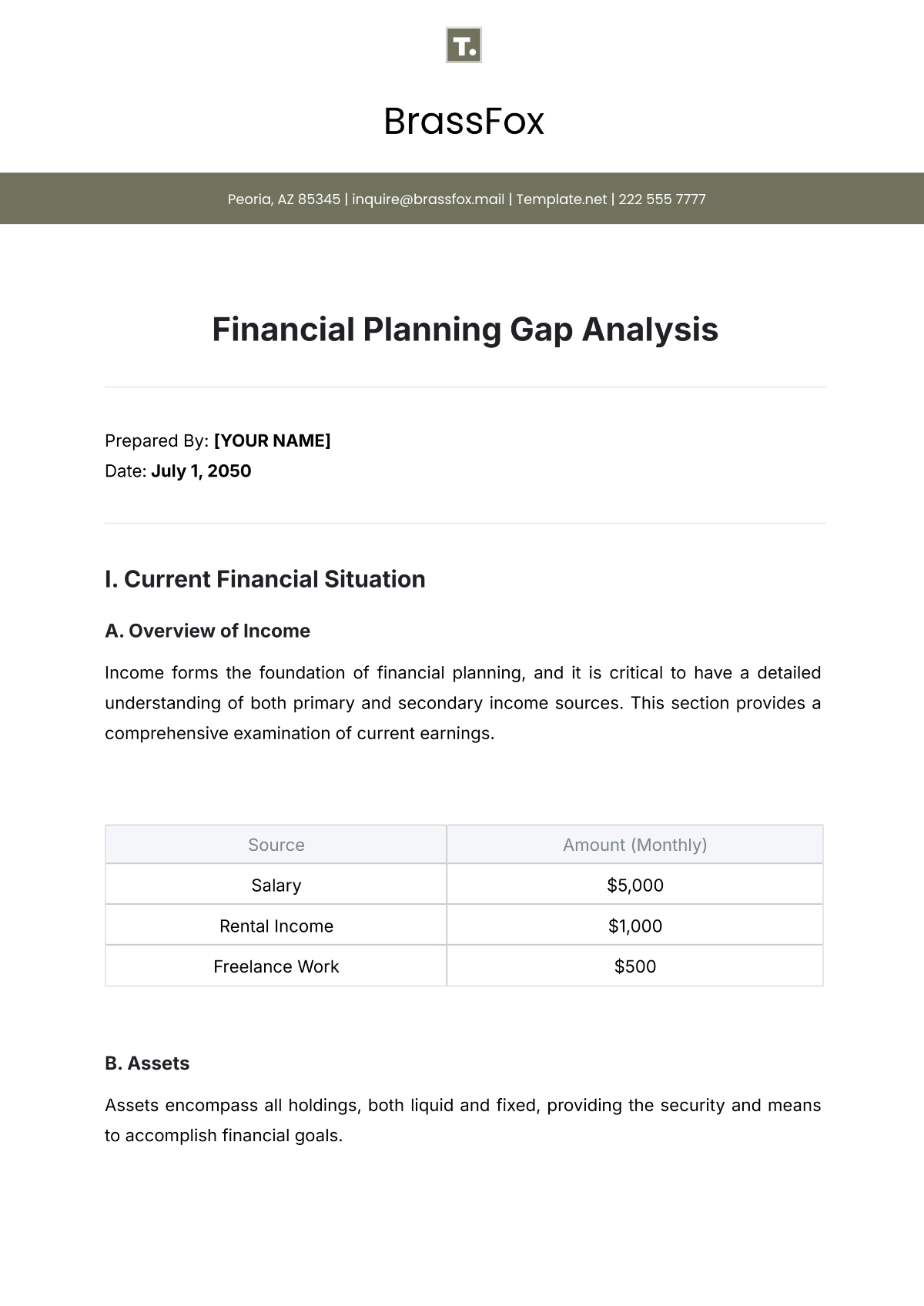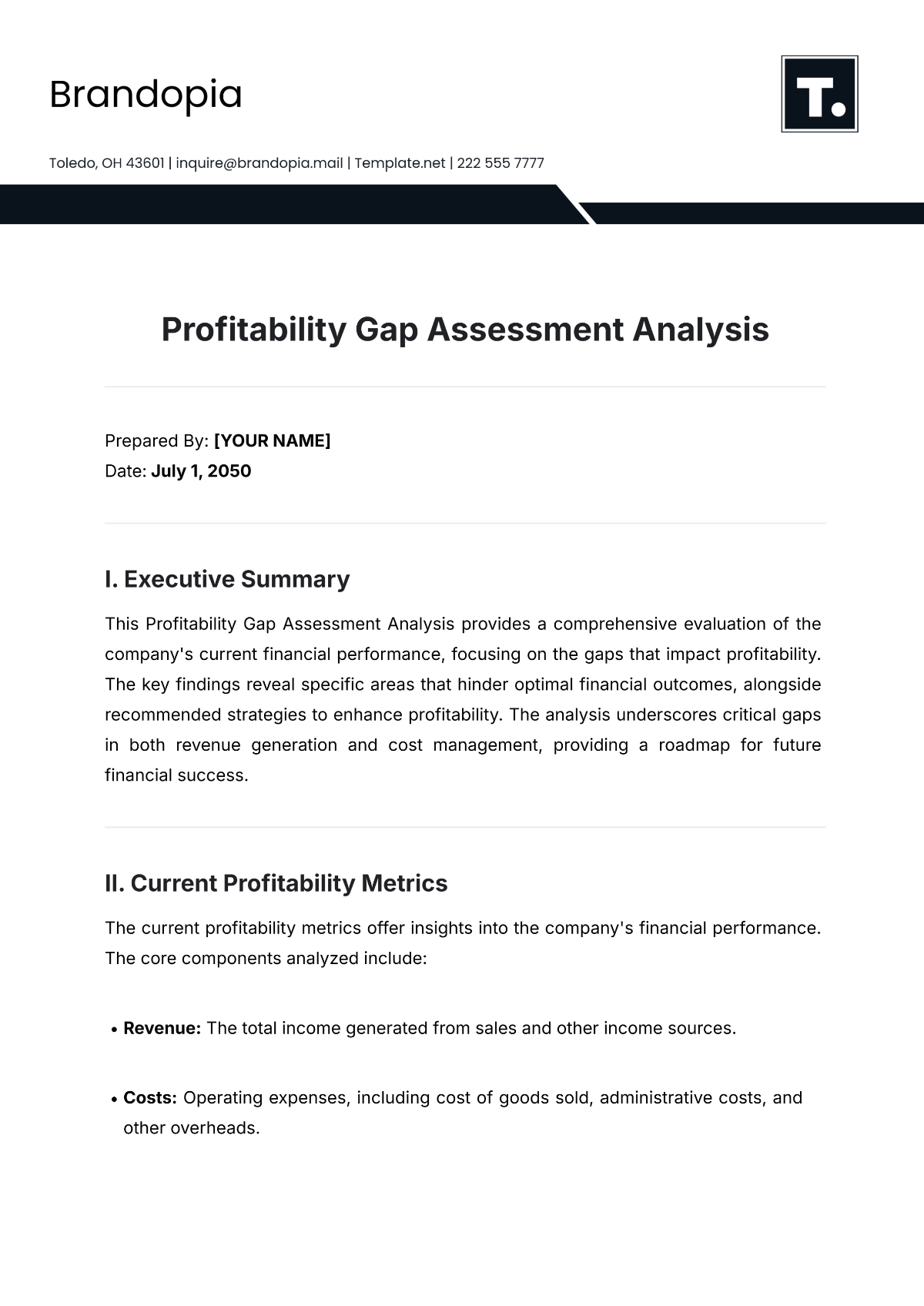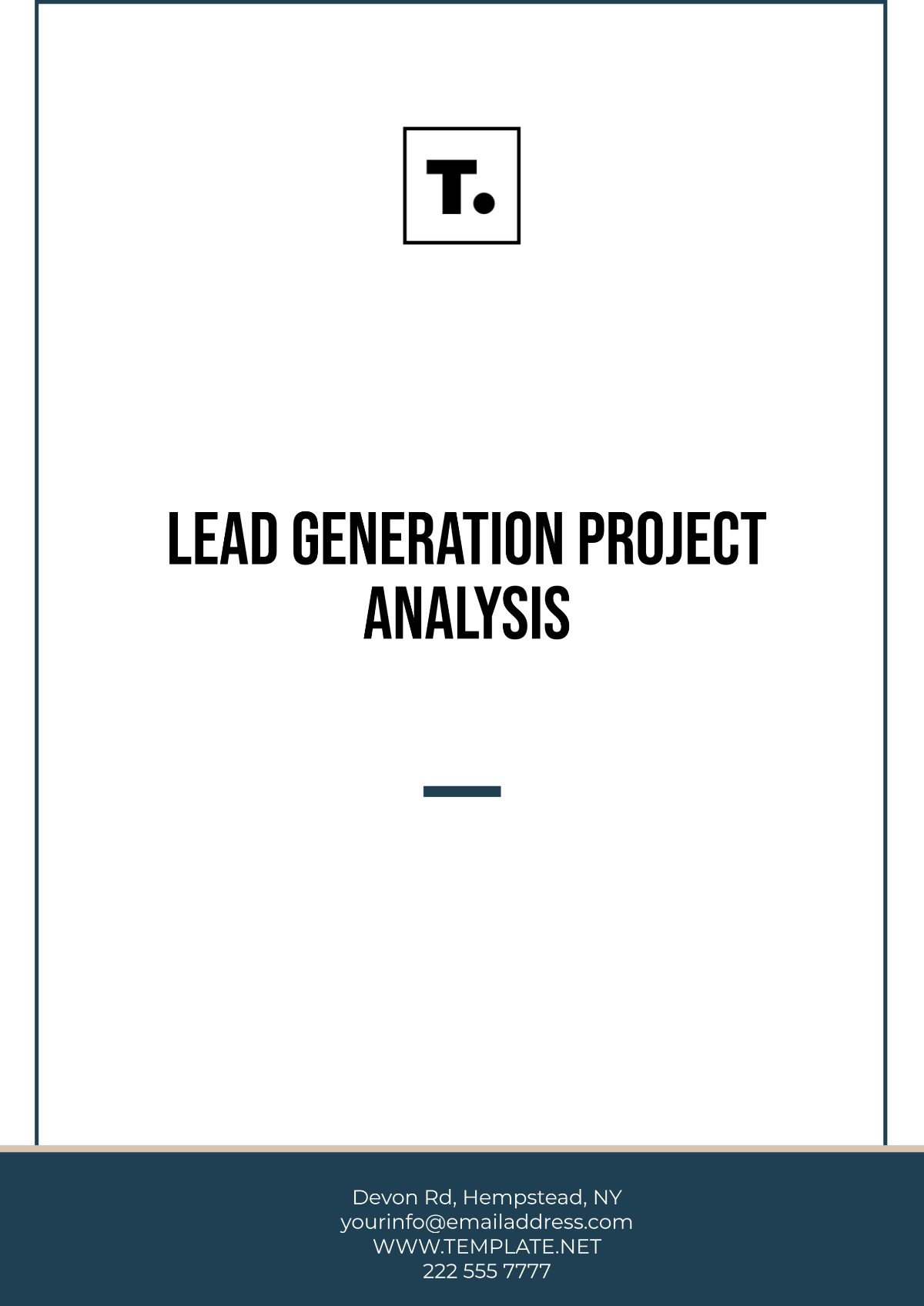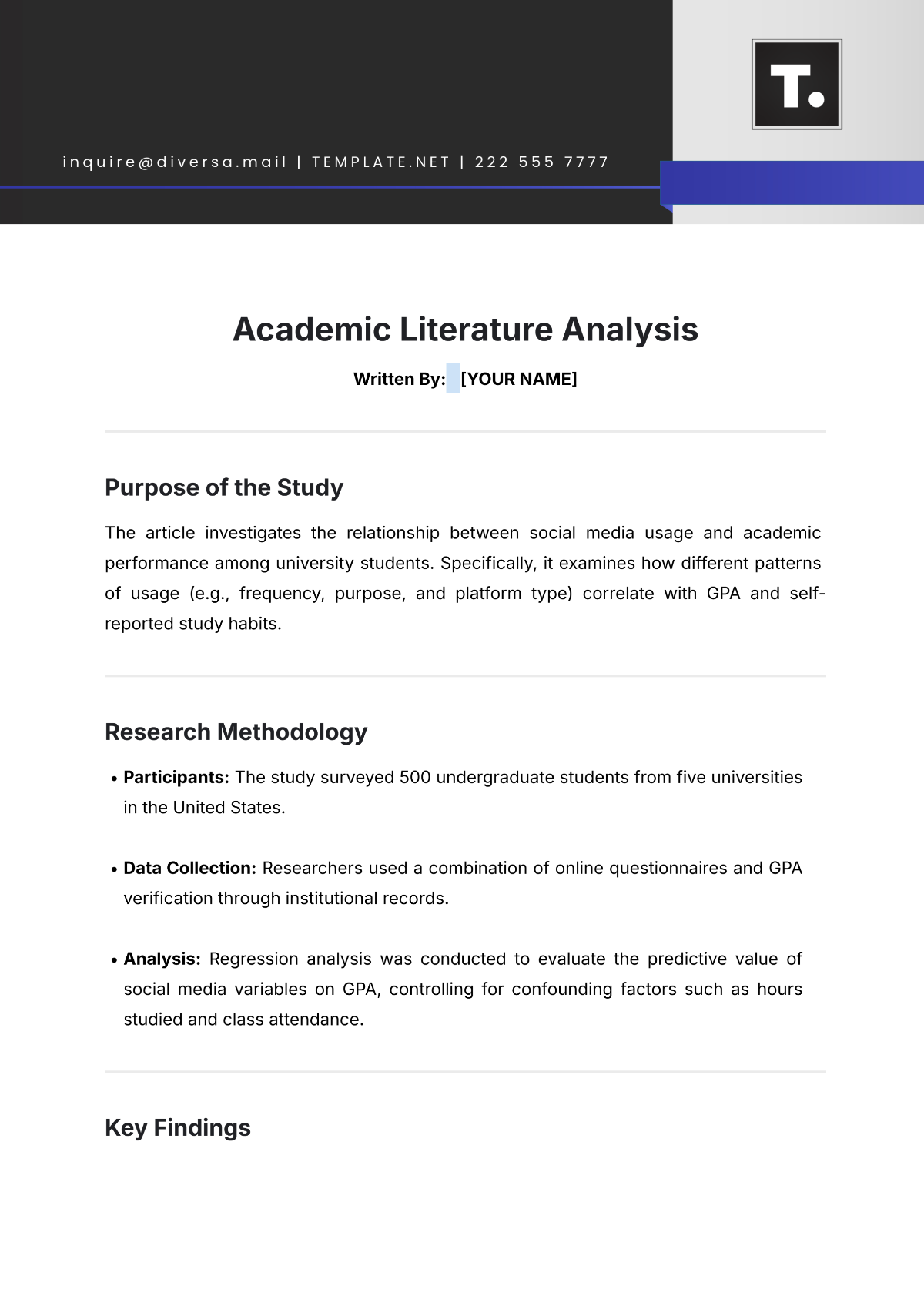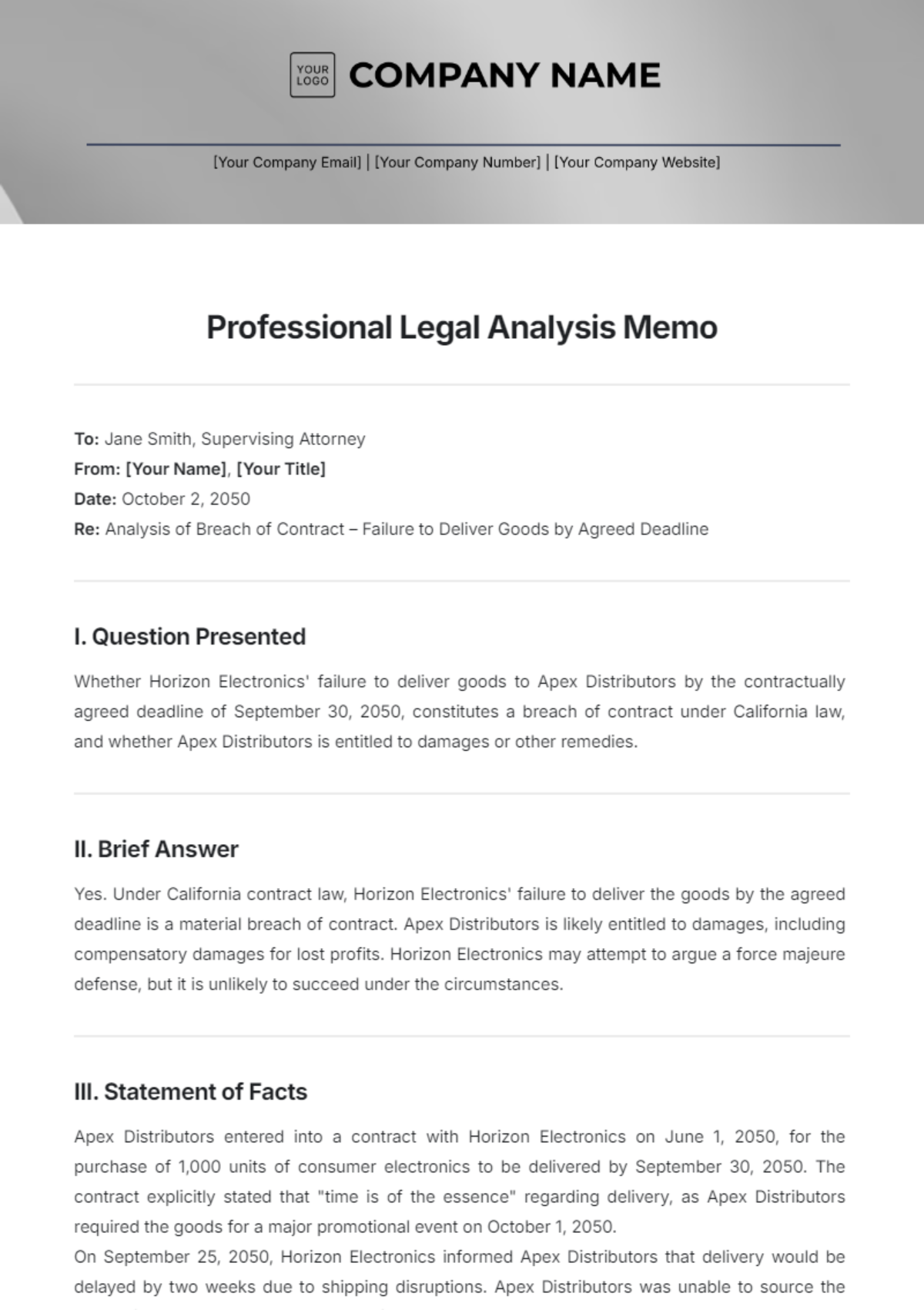Customer Needs Analysis
Prepared By : | [Your Name] |
Department : | [Your Department] |
Company Name : | [Your Company Name] |
Company Address: | [Your Company Address] |
Company Social Media: | [Your Company Social Media] |
I. Executive Summary
A. Purpose
To identify and understand customer needs and expectations for the next-generation smart home system.
B. Scope
This analysis covers the period from January 1, 2050, to December 31, 2050, and includes data collected from online surveys, focus groups, and customer interviews.
C. Key Findings
Customers prioritize energy efficiency and seamless integration with existing smart devices.
There is a strong demand for enhanced security features and user-friendly interfaces.
Price sensitivity remains high, with customers seeking value for money.
D. Recommendations
Develop energy-efficient smart home devices with AI integration.
Focus on advanced security protocols and intuitive user interfaces.
Offer flexible pricing models and bundling options to cater to various budget levels.
II. Research Methodology
A. Research Methodology
Data Collection Methods | Description |
|---|---|
Surveys | Conducted online surveys targeting 10,000 existing and potential customers. |
Interviews | 100 in-depth interviews with a diverse group of users. |
Focus Groups | Held 10 focus group sessions with 8-10 participants each. |
Secondary Data | Analyzed industry reports and competitor data. |
B. Sample Size and Demographics
Parameter | Details |
|---|---|
Sample Size | 10,000 survey participants, 100 interviewees, and 80 focus group members. |
Demographics | Age range: 25-65 Gender: 55% Female, 45% Male Location: Urban and suburban areas across North America |
C. Analysis Techniques
Technique | Description |
|---|---|
Qualitative Analysis | Thematic analysis of interview and focus group transcripts. |
Quantitative Analysis | Statistical analysis using SPSS and Excel for survey data. |
III. Customer Segmentation
Segment | Description | Key Characteristics | Percentage of Total Customers |
|---|---|---|---|
Demographic | Age, Gender, Income, Education | Varies based on specific categories | 30% |
Geographic | Region, Urban vs. Rural, Climate | Varies based on location | 25% |
Psychographic | Lifestyle, Values, Interests | Tech-savvy, Eco-conscious, Security-focused | 20% |
Behavioral | Purchasing behavior, Brand loyalty, Usage rate | Frequent upgraders, Budget-conscious | 25% |
IV. Needs Assessment
Need | Priority Level | Description |
|---|---|---|
Energy efficiency | High | Reduce energy consumption and lower utility bills. |
Seamless device integration | High | Ensure all smart devices work together smoothly. |
Enhanced security features | Medium | Improve data privacy and physical security. |
User-friendly interfaces | Medium | Develop intuitive and easy-to-use interfaces. |
Aesthetic design | Low | Offer visually appealing products. |
Customization options | Low | Provide options for personalization and customization. |
V. Competitive Analysis
Competitor | Description |
|---|---|
[Competitor 1 Name] | Comprehensive smart home solutions with premium pricing. |
[Competitor 2 Name] | Mid-range smart home products with a focus on usability. |
[Competitor 3 Name] | High-security smart home devices with robust data protection. |
A. Market Positioning
[Your Company Name] is positioned as a mid-to-high-range provider focusing on energy efficiency and user-friendly integration.
B. SWOT Analysis
Category | Description |
|---|---|
Strengths | Strong R&D capabilities, Established brand reputation |
Weaknesses | Higher price point, Limited presence in emerging markets |
Opportunities | Growing demand for smart home technology, Market expansion in Asia |
Threats | Intense competition, Rapid technological advancements |
VI. Recommendations
A. Product Development
Invest in energy-efficient technology and AI integration.
Develop a universal integration platform for various smart devices.
B. Marketing Strategies
Launch targeted marketing campaigns highlighting energy efficiency and security.
Partner with eco-friendly and tech-savvy influencers to reach a broader audience.
C. Customer Service Improvements
Enhance customer support with 24/7 service and quick response times.
Implement comprehensive online resources and tutorials for self
VII. Conclusion
This Customer Needs Analysis provides actionable insights that can help [YOUR COMPANY NAME] refine its strategies and product offerings to better meet customer expectations. Implementing the above recommendations will likely enhance customer satisfaction and foster business growth.

